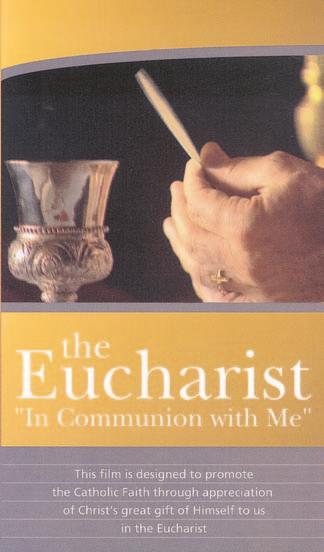




In his first meeting with the new head of the Anglican Communion, Pope John Paul II expressed concern that ecumenical relations face new tensions as Anglicans consider the implications of the ordination of an openly gay bishop in the United States.
Pope John Paul welcomed Anglican Archbishop Rowan Williams of Canterbury to the Vatican on October 4 and gave him one of the first pectoral crosses forged to commemorate the 25th anniversary of his pontificate.
The archbishop gave the Pope a Canterbury cross, and he and his entire delegation kissed the Pope's hand at the end of the audience.
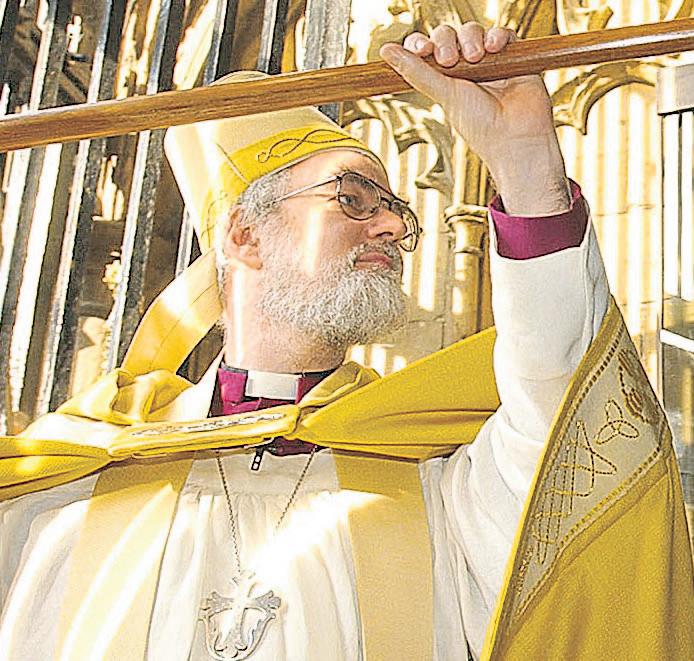
Pope John Paul also kissed Archbishop Williams' ring, a ring
Pope Paul VI had given the archbishop's predecessor, Archbishop
Michael Ramsey, in 1966. But the warm personal relations were mixed with serious concern for the continued unity of the Anglican Communion's 38 provinces and their decisions regarding the morality of homosexual activity.
“ A s w e g i v e t h a n k s f o r t h e p r o g r e s s t h a t h a s
a l r e a d y b e e n m a d e , w e m u s t a l s o r e c o g n i s e t h a t n e w a n d s e r i o u s d i ff i c u l t i e s h a v e a r i s e n o n t h e p a t h t o u n i t y ”
In his speech to the archbishop, the Pope said, "As we give thanks for the progress that has already been made, we must also recognise that new and serious difficulties have arisen on the path to unity.
"These difficulties are not all of a merely disciplinary nature," he said. "Some extend to essential matters of faith and morals."
"In light of this," the Pope told his Anglican guests, "we must reaffirm our obligation to listen attentively and honestly to the voice of Christ as it comes to us through the Gospel and the church's apostolic tradition."
"Faced with the increasing secularism of today's world, the church must ensure that the deposit of faith is proclaimed in its integrity and preserved from erroneous and misguided interpretations," Pope John Paul said.
At a press conference later, Archbishop Williams said he was not surprised by the Pope's clear warning that the Anglican Communion's acceptance of an openly gay bishop, Bishop-elect V. Gene Robinson, would create further obstacles to unity.
"I would expect His Holiness to express himself forcefully on any subject concerned with witness to the Gospel," he said.
Archbishop Williams said the decision of the U.S. Episcopal Church to ordain an openly gay
Continued Page 2
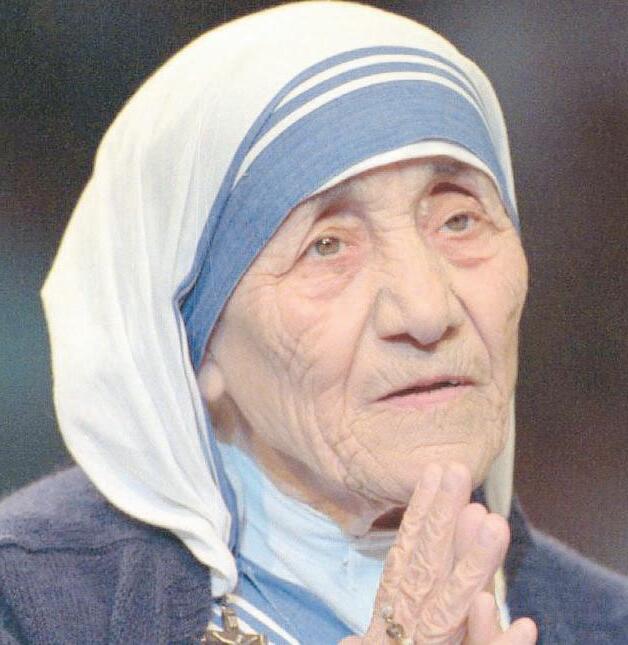

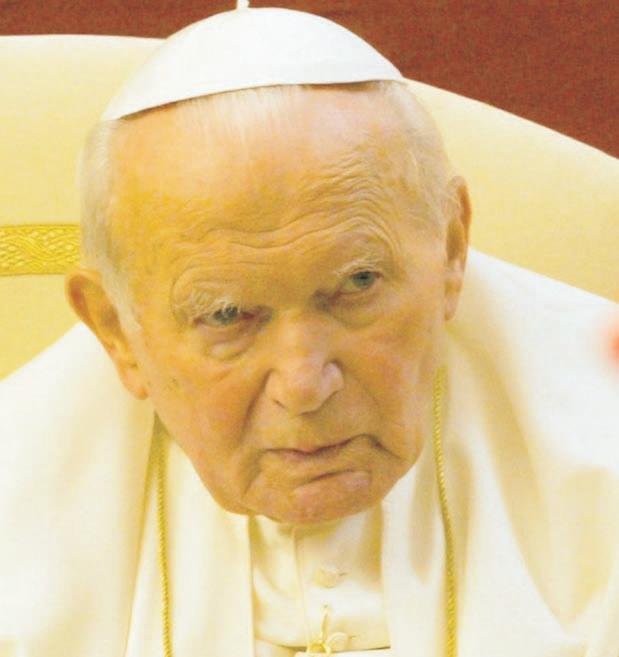
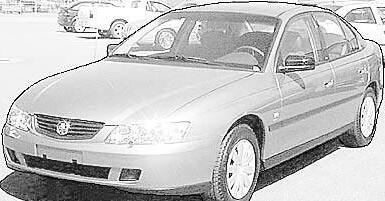
No. 3378
The Record, established in 1874, is distributed to Catholic Churches, presbyteries, religious houses and subscribers throughout the Archdiocese of Per th, Geraldton, Bunbury, Broome and overseas.
Managing Editor
Peter Rosengren
Production/ Advertising
Carole McMillen
Office Manager
Kylie Waddell
Bronwen Clune
Debbie Warrier
Hugh Ryan, Paul Gray, Fr Tim Deeter, Tony Evans, George Russo, Peter Dwan, Norma Woodcock, Guy Crouchback
SUBSCRIPTIONS
Subscribe to The Record (46 issues) and Discovery (6 issues) $55 per year.Send subscription with cheque or money order.
ADVERTISING
Editorial:Tuesday first mail
Advertising:
Booking:Monday
midday
Copy:Tuesday midday
CONTACT US
587 Newcastle Street, West Perth, WA 6005 POBox 75, Leederville, WA 6902
Tel.9227 7080
Fax 9227 7087 or find us on the web www.therecord.com.au
Editor cathrec@iinet.net.au
Classifieds/ Advertising advertising@ therecord.com.au
Accounts administration@ therecord.com.au
The Catholic Church is a continuous Mission. It has been engaged in a universal mission from the day Jesus said “Go into the whole world and preach the Gospel to every creature….” and it will continue that way until the Lord comes to claim his kingdom.
It is important for all of us to be part of that mission, spiritually and physically.
The news media tell us about the more spectacular physical needs of millions of people who suffer from wars, droughts, famines and diseases in many parts of the world, but there is less attention
paid to the spiritual needs of people.
Catholic missionaries - priests, religious and lay people – are to the forefront of the world’s efforts to help those in need. In most cases, they have been on the scene for years before the world declares a crisis and they will be there years afterwards when the crisis is forgotten for another one. They work to build the life of individuals, families and whole cultures. They are there to help with the physical, personal, educational, economic and spiritual needs of people. It is a common
Continued from page 1 bishop is "a serious and potentially divisive question," because "it touches matters about the interpretation of the authority of Scripture and also the sense we give to the reception of Christian tradition."The position of the Roman Catholic Church is clear, he said.
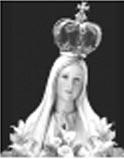
f o r A d u l t F a i t h E d u c a t i o n
Catholic Education Centre, 50 Ruislip St, Leederville
T e r m 4 C o u r
7 weeks - cost $40.00
beginning Tuesday October 14 9.30am-12noon: Catholic Moral Teaching with Fr Joe Parkinson 1.00pm-3.00pm: Pastoral Ministry with Sr Margaret-Anne Beech C a F E C a
Follow-up session to form and help leaders in setting up and running a parish CaFE groupFriday November 7, 9.30am-1pm. Repeated Friday November 14 9.30am-1pm.
myth that spiritual needs don’t matter when people are starving, but that is when they are most important. If we were facing death and despair, as so many Catholics are in other parts of the world, all of us would want for ourselves and our families the sacraments and consolations of the Church. They are often available only through the presence of missionaries we support with our prayers and generosity. Today in Africa and other developing countries there is a great upsurge of vocations to the priesthood and the religious life. These generous Catholics would
"We've listened hard to what has been said in these past days," and the Catholic Church's concern will be communicated to the 38 Anglican primates who will meet on October 15-16 to discuss ways to preserve the unity of their church, he said.
Pope John Paul read his speech with great difficulty, pausing to catch his breath every three or four words; he read the entire text, though near the end of the speech his words were garbled.
"I found this a very moving occasion," the archbishop said at the press conference. "The most important impression I would want to share from my meeting today is of that extraordinary and indomitable spirit of will which lives in him."
In his speech to the Pope, Archbishop Williams did not refer to the current tensions, but reaffirmed "my commitment to the full, visible unity of the church of Christ."
"It is a great joy to be here, in this month of the silver jubilee of your election," he told the Pope. "Over the last 25 years, your pontificate has been a source of strength to countless Christians, both within and beyond the family of the Roman Catholic Church.
"I pray that we may continue to deepen the communion we share, until Our Lord's command is fulfiled that we may be one in him," the archbishop said. At the press conference, Archbishop Williams and Cardinal Walter Kasper, president of the Pontifical Council for Promoting Christian Unity, said their meeting on October 3 included a serious discussion of the problems that could arise if the Anglican Communion moves away from traditional Christian teaching against homosexual activity. Cardinal Kasper told Vatican Radio he had expressed his concern to the archbishop about the "ordination of priests who are practicing homosexuals" because it has an impact "not only within the Anglican Communion, but is a problem which touches our relationship."
"In fact," he said, "we have a clear position which is that expressed in the 'Catechism of the Catholic Church'" that homosexual activity is a sin.
"I expressed my desire, my hope that he is able to find a solution which is acceptable to the Anglican Communion and which will not have repercussions on relations with our church," the cardinal said.
Before the press conference, the cardinal was asked why Vatican reaction against the ordina-

not have been there to hear the call of God and answer it were it not for the work of the missionaries of the last 50 years or so, missionaries you and your parents probably supported in your childhood. They are doing God’s work and you can share in that work through your prayers and generosity. Most of all, the people in the mission fields need your prayers.
Catholic Mission - Page 4
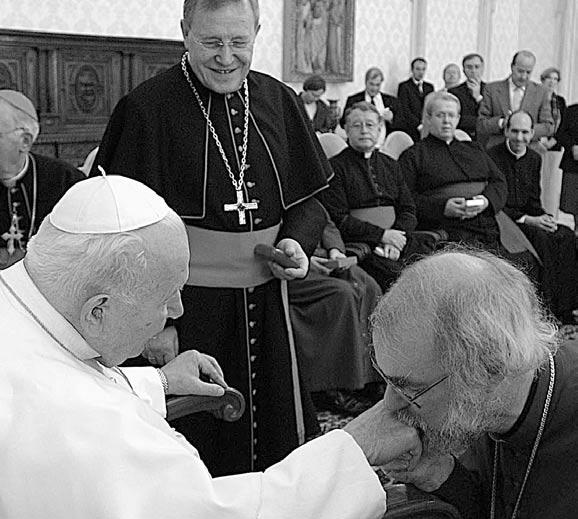
tion of a gay bishop was conveyed in private conversations, unlike the public papal letters and statements sent in the mid-1970s regarding the ordination of women priests in Anglican communities and in the mid-1990s opposing the ordination of women bishops.
"The ordination of women was an institutional decision which would be very hard to change," he said, "but the appointment of one bishop, that's different."
Cardinal Kasper and Archbishop Williams emphasised that the issue of homosexual bishops and priests did not dominate the archbishop's first visit to Rome.
Rather, they said, it was an opportunity to celebrate new friendships in the context of growing Catholic-Anglican sharing forged over the past 40 years. The evening after meeting the Pope, Archbishop Williams presided over a prayer service in the Church of Santa Maria Sopra Minerva. The archbishop told the congregation, "Today marks my entrance into the increasingly warm relationship between the See of Peter and the See of Augustine," the first bishop sent from Rome to Canterbury, before the churches split. The Anglican Communion is "a family that at times has disagreements," he said, referring to the current tensions. He told the congregation he came to Rome "not only to visit, but to pray," and asked for the congregation's support in prayer.
All
There
POMPEII, Italy (CNS) -- Closing a year dedicated to the rosary, Pope John Paul II came to a Marian sanctuary in Pompeii on October 7 and prayed for world peace with an estimated 30,000 pilgrims.
The Pope joined in reciting the five "mysteries of light" which he added to the rosary last year.
Then, in a halting voice, he read a speech calling for a new movement of prayer and peacemaking to help heal the "conflicts, tensions and tragedies of every continent."
The Pope said the rosary is an ideal prayer for peace, with its simplicity and its ability to "calm the spirit," and is especially needed in a world "torn by winds of war and lined with blood in so many regions."
The Pope looked alert and content during the three-hour visit, and he managed to read almost all of his two-page talk, although he had to pause often between phrases. At the end, he thanked the people there, asking them to pray for him "today and always."
The Pope's declining health in recent weeks has prompted many to suggest that the visit to Pompeii, his 143rd trip in Italy, might be his last inside or outside the country. He suffers from a neurological disease that has made it difficult for him to stand or walk.
Using a small mobile lift, he
boarded a helicopter at the Vatican and landed an hour later at a helipad next to the archeological excavations that have made Pompeii famous.
As the sun broke through threatening skies, he rode in an open jeep to the Sanctuary of the Blessed Virgin Mary of the Holy Rosary in the centre of the modern city, waving to well-wishers on a route decorated with flowers and strung with banners that read: "Your Holiness, welcome home."
"We have a special affection for this Pope, and here there is a strong devotion to Mary. That's what makes this visit so special," said Filomena Cavallaro, a mother of four who watched the Pope ride by. Like many in the city, she said she still had vivid memories of the Pope's previous visit there in 1979.
Seated on a platform on the steps of the sanctuary in front of a crowd that filled the square and surrounding streets, the Pope slowly pulled out his own rosary and recited quietly as representatives from every continent lit oil lamps and led the prayer.
The five mysteries of light, which the Pope designed as a major innovation to the rosary, focus on episodes from Christ's public ministry: Christ's baptism in the Jordan River, his "self-manifestation" at the wedding at Cana, his proclamation of the kingdom of God, his transfiguration, and his institution of the Eucharist.
Dogs predominated and cats were there, but the rats were the stars of the show when St Simon Peter Parish, Ocean Reef, conducted a blessing for pets last Saturday, October 4, the feast of St Francis of Assisi.
The pets behaved themselves while Parish Priest Fr Bronek said the Church’s
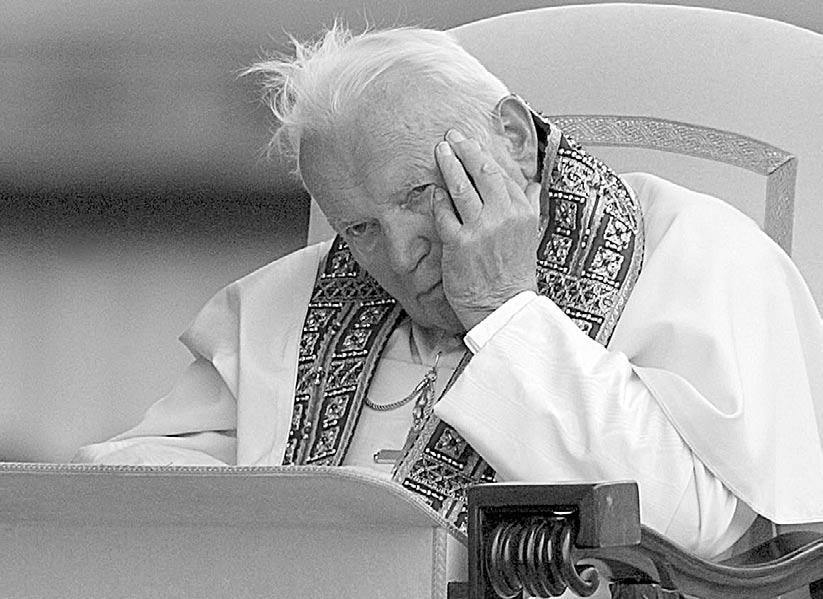
In his speech, the Pope said he was convinced that by proclaiming a "year of the rosary" he had prompted a significant reawakening of the prayer. That in turn should encourage Christians to put their faith into action in their own societies, he said.
"Today, like in the times of ancient Pompeii, it is necessary to announce Christ to a society that is drifting away from Christian values," he said.
The rosary, he said, is like a compendium of the Gospel. It reviews the life of Christ from the perspective of Mary.
"And who more than she knows Christ and loves him?" he said.
formal blessing for animals, with parents and children joining the responses.
The blessing reminds us of the involvement of animals in God’s plan of salvation at creation, in their rescue in the Ark, in a variety of Old Testament stories, in the life Jesus, and right through to the present day.
Fr Bronek and Fr Phong then moved through the crowd of about 30 people, blessing all the pets and their owners.
It was the first time the ceremony has been held at Ocean Reef.
Sophie Howard (8) and her brother Michael (11) aroused much interest with their pet rats, Allie and Milly, which they got earlier this year.
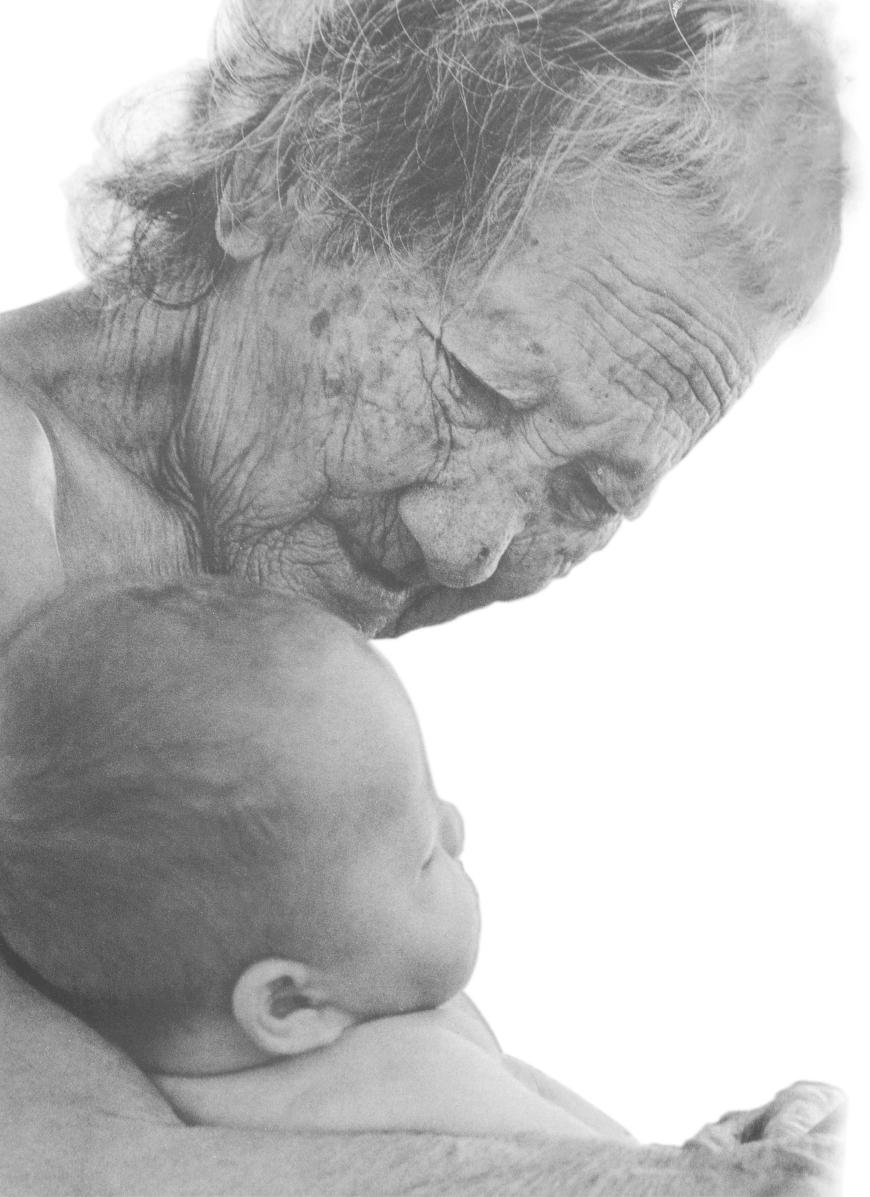

In Pompeii, the rosary has been popular. Two days before the Pope's arrival, some 10,000 people gathered to recite the rosary on the first Sunday of the month.
Many young people in the crowd wore rosaries around their necks.
Several youth said they recited the rosary, though not as often as their parents did -- it's a question of not enough time, they said.
Older people from the area said they've recited the rosary since childhood.
"Always, always, even in the family. It is our way of praying to Mary, “ said a woman who gave her name only as Anna. She and
“I love it. It’s just the best friend,” said Sophie, and Michael agreed they were “very cute” and no trouble to have around the house.
Their mother, Rebecca Howard, said that rats were very good pets that spent most of their time out of their cage.
They were great fun for the children and a great opportunity for them to learn the responsibility of feeding, cleaning, and caring for their pets.
“They are very good with them,” she said.
The children’s grandfather, John Varley, also had a pet rat on hand for the blessing. - Hugh Ryan
a dozen others prayed the rosary aloud as they walked through the streets of Pompeii hours before the pope's arrival.
Those who stood near the papal platform watched the 83-year-old pope closely, and some could not help but compare the frail figure, head slumped to his chest, with the energetic pontiff who visited them 24 years earlier.
"You look at him and you think, poor pope. But his faith is still strong, and I think this is what allows him to keep going. That's an inspiration to us," said Giuseppe Giugliano.
He said the pope's visit was important.
"When the pope travels, the people are stirred. Somehow, he finds a way to move people's souls. That's why it's important for him to keep this up, as long as he can," he said.
The pope did not linger at the ruins of the ancient city buried by an explosion of Mount Vesuvius in 79 A.D., but he referred to them in his talk. The ruins are the witness of a great culture, he said, but they also pose essential questions about human destiny.
He said the background of ancient Pompeii added a symbolic dimension to the call for praying the rosary and announcing Christian values in modern society.
The pope thanked the young people for their enthusiasm, prompting one of the biggest cheers of the day.
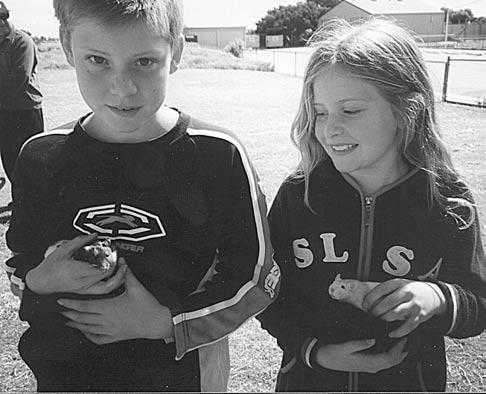
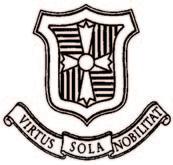
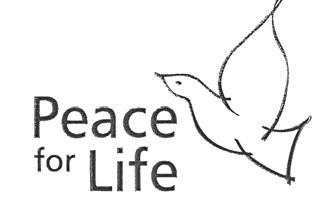





This year’s W orld Mission Day theme on 19 October, 2003 is “Peace for Life”. This international event is a chance for all of us to reflect on peace, given the current world climate.
An estimated 300,000 children under the age of 18 are currently participating in armed conflicts in more than 40 countries on almost every continent around the world. While most child soldiers are in their teens, some are aged seven.
To support Catholic Mission’s vision of Life for All, try its actions of Peace for Life. One action is sending a message of peace during World Mission Week, 19-24 October, 2003.
Send the message to those who may be ostracised, or living with conflict.
Or send one to somebody who you may be currently in conflict with personally, to the government or a world leader asking for peace.
Or download a Message for Peace form on the website www.catholicmission.org.au
Another action set for Wednesday, 22 October, 2003 is Children’s Mission Day. Everyone is encouraged to wear a Peace for Life armband on this day as a public display to actively create peace.
Free armbands are available by calling Catholic Mission on 1800 257 296 or you can order online at www.catholicmission.org.au
Okot is one of about 10,000 children who have been abducted by rebels during thecivil war which has raged for 14 years in the north of Uganda. The ‘Lord’s Resistance Army’ is the hypocritical name of the rebel force. Boys are abducted to become soldiers - an AK-47 can be purchased for the cost of a chicken, girls are abducted and commonly divided up and allocated to soldiers to serve as their ‘wives’.
The rebels have no difficulty in making the abducted boys do their bidding. A disobedient or unassertive soldier gets nothing to eat. Only those who have killed a lot of men, women and children and taken abundant loot get fed.
“It was perfectly normal to have to kill. You either killed or were killed,” Joe, now 15, tells. He was only 13 when he was abducted and only recently managed to escape.
With the support of Catholic Mission, the Archdiocese of Gulu in Uganda has begun a project for the ‘rehabilitation and social integration of traumatised children and child soldiers’. A total of 900 volunteers, mostly catechists, have been trained to cope with the enormous task of helping child soldiers on the long journey back to life in peace. The volunteers are men and women from local villages who live with the people and enjoy their trust.
Geoffry Lakwonyero is a catechist and a volunteer in helping reintegrate former child soldiers into the community. He heard that a child soldier had escaped and after much searching found a completely traumatised Joe who was in fear of his life.
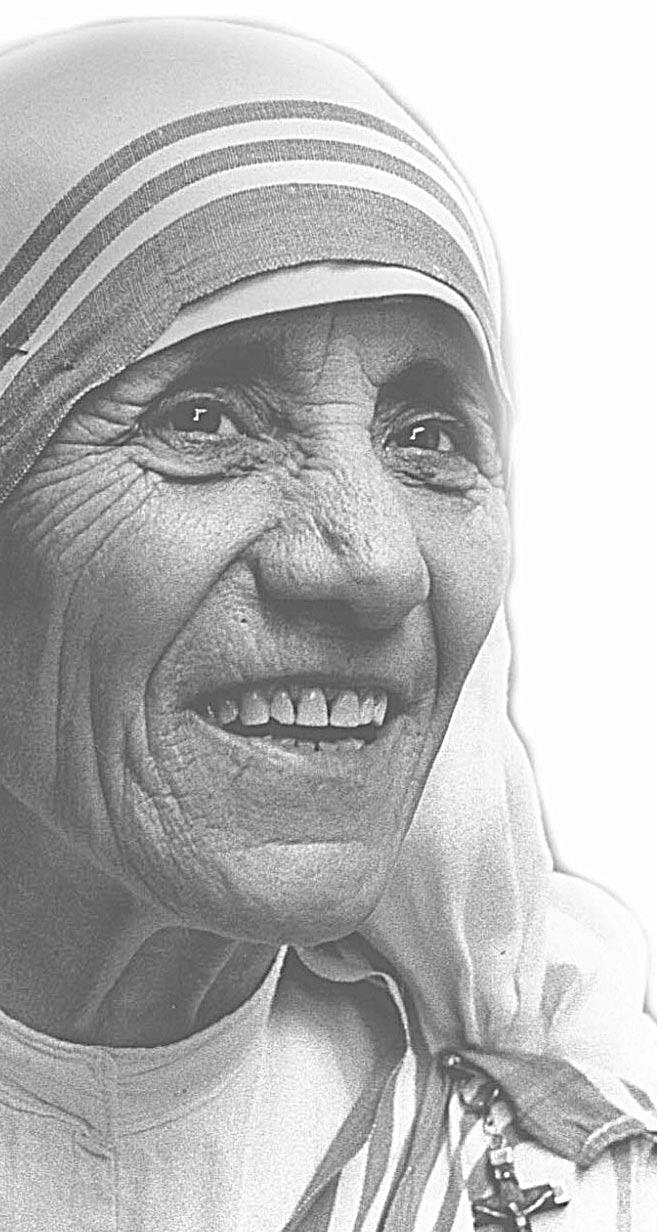
With much hesitation Joe left his hideout. The two now meet regularly. The volunteer knows how difficult it is for a child soldier to return to society. They cannot return to their native village. In the eyes of the villagers the child soldiers are unscrupulous murderers. They are the ones who murdered their neighbours, men, women and children. Ostracised from society, many of the former child soldiers end up on the streets as petty criminals.
It is for this reason that Geoffry and other volunteers like him try to reach out to former child soldiers. They spend time with the child soldiers and very slowly some of their invisible wounds begin to heal. They are supportive and encouraging. Geoffry is paid 1,300 Ugandan shillings per month ($1.03) as a catechist in Gulu, but his work with the child soldiers is completely voluntary. There is not enough money for
all that needs to be done. Without his tiny patch of land, Geoffry would not even be able to feed his own family.
Joe’s parents are dead and he now lives in a small clay hut with his brother’s family. He wants to return to school and with the help of Geoffry and the work of Catholic Mission enough money will be raised for his school fees.
The work of the Church, witnessing the Gospel in encouraging forgiveness and reconciliation, despite the civil war, continues to provide hope with its schools, hospitals and peace projects. Without the solidarity from people all over the world, including Australians through Catholic Mission, this work would not be possible.
Catholic Mission invites you to take part in special actions to help create peace. To find out how or to make a donation freecall 1800 257 296 or visit www.catholicmission.org.au

The beatification of Mother Teresa will take place on 19 October, 2003, World Mission Day. The founder of the Missionaries of Charity religious order in Calcutta has had the quickest road to beatification in modern history.
Pope John Paul II waived the traditional fiveyear waiting period after her death to start the proceedings of the beatification, due to her proven and extraordinary record of helping the poor and sick in India and throughout the world.
Mother Teresa passed away at the age of 87 in September, 1997, and the process for her beatification began in July 1999. Pope John Paul recognized the healing of a young Indian woman’s stomach tumor to be the miracle needed to beatify Mother Teresa.
On the first anniversary of Mother Teresa’s death, a Hindu woman prayed to Mother Teresa asking her to cure her when all else had failed.
The next morning her tumor was gone. There was no scientific explanation for the healing.
Mother Teresa was born in 1910 in Skopje,
Macedonia. She became a nun and was sent to India to teach at a school in Calcutta.
She left the convent in 1948 to serve the poor on the streets of Calcutta. She founded the Missionaries of Charity in 1949, and cared for Calcutta’s poor and sick, even when she was elderly and ailing herself.
The command she received from Jesus was to serve the poorest of the poor and live among them and live like them.
She received the Nobel Peace Prize in 1979 and worked for peace and for the poor throughout her life. There are now almost 4400 nuns working for the Missionaries of Charity in 123 countries, and her presence has touched the lives of millions.
On 19 October, 2003 she will gain the title of “Blessed”.
Her work in life and in death has given testimony to her life as a peacemaker.
Mother Teresa had many beautiful sayings and prayers. One that is most powerful for today is “I see God in every human being.
When I wash the leper’s wounds, I feel I am nursing the Lord Himself. Is it not a beautiful experience?”
“The fruit of silence is prayer, the fruit of prayer is faith, the fruit of faith is love, the fruit of love is service, the fruit of service is peace.” Mother Teresa.
Mother Teresa, whose beatification will be a highlight of World Mission Week, knew well the connection between prayer, mission and peace. It is fitting then, that this year’s Mission Week focus ‘Peace for Life’ will be celebrated in Perth with an Archdiocesan Mission Mass.
To be celebrated at The Good Shepherd Parish, Lockridge on Children’s Mission Day - Wednesday October 22 at 10am, this unique event will draw together student and staff delegates from approximately fifty Catholic primary and secondary schools in the Archdiocese.
Children from other schools will be represented by coordinators from parish-based catechetical programs. Additionally, returned missionaries, university students and members of local refugee communities will participate in the celebration.
The event is being coordinated by the Perth office of Catholic Mission, in collaboration with the Catholic Education Office. Bishop Don Sproxton will preside at the Mass, and will be joined by priests from parishes throughout the Archdiocese. Catholic Mission director Francis Leong said that ‘we are very moved by Bishop Sproxton’s involvement and enthusiasm in the lead-up to the Mass. We know that he will inspire us all with his message of Peace on the day.’ The liturgy for the Archdiocesan Mission Mass has been greatly enriched through the creative participation of a number of schools under the inspiration and guidance of Angela Bendotti from Shine Creations.
Mr Leong went on to say ‘this is a wonderful opportunity for the Archdiocese to come together at Eucharist, be inspired by Christ, and take up the missionary challenge to be peace-makers in our own communities and beyond.’

Our Lady of Lourdes Church came alive to the steady drumming, dancing and musical harmonising of the local Sudanese community as the Nollamara parish celebrated its inaugural Sudanese Mass on Sunday October 5.
The mass was held close to the feast day of the Sudanese saint St Josephine Bakhita.
Father Laurence Murphy celebrated the Mass that many had travelled from other parishes to attend.
At the beginning, Fr Murphy was led to the altar by young Sudanese girls dancing to the music of the choir. They also took up the Offertory gifts, and after Mass escorted the priest from the altar in the same manner. The predominantly-adult Sudanese choir sang mainly in their own language.
In his homily, Fr Murphy spoke of strength of St Bakhita. The saint was forced into slavery in 1877, aged nine. She was set free two years later by one of her masters, an Italian Vice-consul. He sent her to Italy at her request, where she later became a Cannossian Sister. In 1902, she was sent to a Convent to assist with nursing and died in 1947. She was beatified in 1992, and canonised in 2000.

Fr Murphy welcomed all those who had migrated from Sudan and acknowledged the hardships they had endured in their homeland.
One of Our Lady of Lourdes’ parishioners, Mr Emmanuel Lopit Onesimo, is a second-year computer system engineering TAFE student. He left Sudan in 1995, then moved to Kenya with other refugees and eventually migrated to Western Australia in 2001. In Kenya he had become a catechist in response to the severe shortage of catechists and priests. He no longer teaches catechism, but is an active
member of the Nollamara Parish choir. He enjoys his new life in Australia. “It’s peaceful,” he said. Fellow parishioner James Atuer agrees. He left war-torn Sudan in 1987 and came to Australia in May 2003.
Of his first encounter with the Australian vernacular, Mr Atuer said “I found it hard to understand people, the slang. Australians talk so fast!”
He added of his adopted homeland in general, “The good thing is Australia is peaceful and there are many people who are willing to help us.”
On Sunday September 28, at 3.30pm Bishop Justin Bianchini of Geraldton dedicated and blessed a newly constructed and erected steel cross measuring 7.38m in height close to the family home on their farm of Peter and Margaret Thomas in the Mullewa-Pindar district.
Supporting Bishop Justin in this inspiring faith event were four priests, Fr Francis Phan of Mullewa, Fr Brian Ahearn PP of Dongara, Fr Peter Downes PP of Morawa-Three Springs and Fr Brian Morgan, retired priest of Mandurah and a large gathering of 90 people including Christian Brothers and visitors celebrating a wonderful 75th Jubilee over the long holiday weekend at nearby St Mary’s Agricultural School, Tardun.

The afternoon was a perfect early spring one, warm but fanned by a cool sea breeze.
Majestic in its simplicity and solidity stood the cross on its impressive stepped concrete base laid by Charlie Mangano and con Gorgone of Geraldton.
Joyful but seriously moved were Bishop Justin and all who came to witness this special event. sister Goretti Keane of the Geraldton Presentation Sisters, a close friend over many years of Peter and Margaret, designed and produced a booklet entitled “Blessing of the Cross for Evangelism” which Bishop Justin fol-
lowed in its entirety. As the ceremony of prayer and gratitude to God neared completion it was a special moment when all, including the children, were invited to come forward to venerate the now blessed Cross and to devoutly kiss it. This fulfiled a graced dream of the Thomas family. All praise and Honour to You, O Lord, in the Immaculate Heart of Mary who shared deeply ion the Cross of Christ, Her Son.
May this Cross of Our Lord Jesus Christ erected and blessed in this remote spot be an unfailing, moving reminder to all who behold it of the greatest act of love humanity will ever witness. May it stand here as a silent symbol to Evangelisation. May those who visit it be inspired to make the Gospel their way of Life.
The Trustee of the KSCEducation Foundation Inc (a project of the Knights of the Southern Cross) takes pleasure in again inviting applications from teachers of Religious Education in Catholic Schools in Western Australia to undertake further study for units in religious education or theology at the University of Notre Dame Australia in 2004.
Application forms and further information are available from:
The Secretary
KSC Education Foundation Inc
POBox Y3128
26 St George’s Terrace PERTHWA6832
Telephone (08) 9225 6011
Application close on 7 November 2003
Father Poulose Manickathan
SAC, affectionately known as simply ‘Fr Paul,’ of Queen of Apostles Parish in Riverton, was warmly farewelled last Sunday morning by parishioners as he prepared to transfer to St Peter’s Church at Clayton in Victoria.
Fr Paul, a member of the Pallottine Order, spent two years at Riverton and was fully involved in community life as assistant parish priest. He was also Chaplain at Ursula Frayne College in Victoria Park and Emergency Chaplain at Murdoch Hospital. Parish priest Fr John Flynn SAC paid tribute to Fr Paul at the farewell for the positive impact he had had. He described Fr Paul as an exciting priest whose personality exuded a sense of effervescence, humour and a great deal of energy. He was willing to do anything he was asked both in and outside the presbytery. Meanwhile his ‘in’ time in the presbytery had been partly used for cooking spicy food, something the Indian-born priest particularly enjoyed. His brisk walking sessions with Fr Flynn were often filled with humour. Fr Paul, he said, also pos-
sessed the special quality of humility; he was easy to live with and had quickly established cordial relationships with fellow priests and parishioners.
Fr Paul will best be remembered for his humour. His homilies were interspersed with jokes that were appreciated by congregation members throughout the lifespan. The parish bulletin aptly summed up Fr Paul’s departure in the following way: “We will miss his cheerfulness, kindness and friendliness to all in our Parish”. Fr Paul is replaced by Fr Jude, a Pallotine Father from India.
Fr Paul was keen to immerse himself with life in the parish community. He visited families frequently. On his visits, he found time to ‘kick a ball’ with young members of the household. He expressed his appreciation of the parish ministry and enjoyed the cooperation of parishioners. Despite his busy schedule, Fr Paul kept in touch with community members from South India. He played badminton with the Andhra community on Sunday afternoons and from time to time celebrated the Syrian-rite liturgy for people from Kerala.
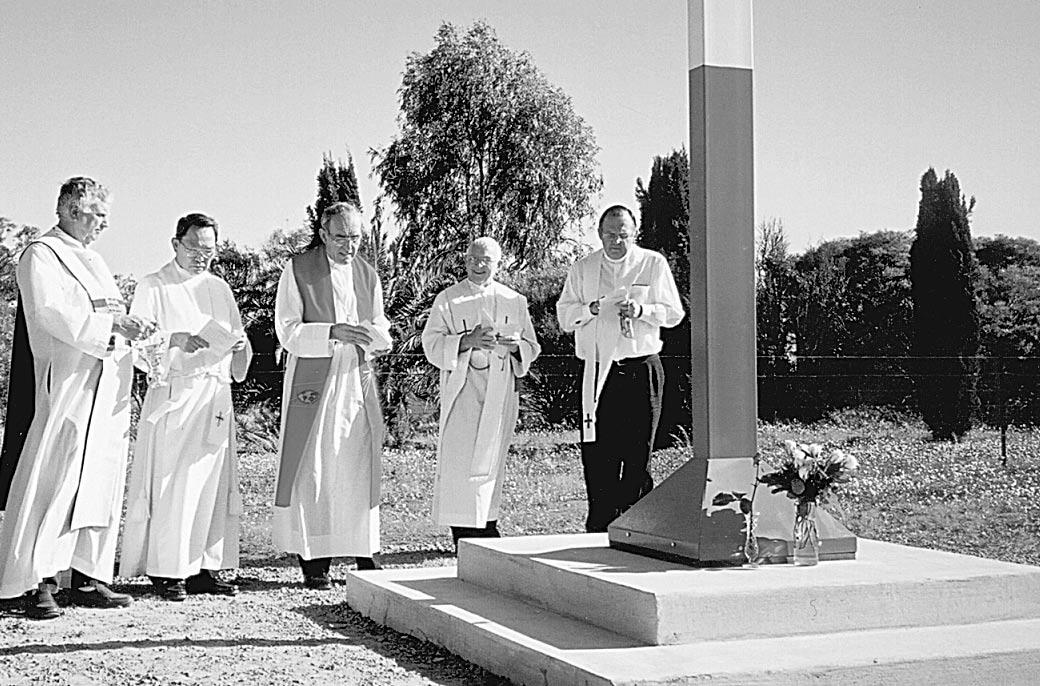





Today I am writing on a serious subject: poetry. Wearing another hat I help edit a small magazine that publishes a little poetry, and I often receive contributions in the mail.
Now the odd thing about this - and I understand my experience here is the same as every other poetry editor - is that not quite all, but astonishingly many, of the people who write poetry hoping for it to be published have not read a word of it since their school days.
In many ways I don’t blame them. Much modern poetry is ugly, unintelligible and unimportant, bad prose randomly and pointlessly chopped into lines, containing sentiments, which, if they are intelligible at all, are no more original, enlightening or uplifting than “I feel depressed again today,” or “Everything is futile.” Cultural organisations, including local ones, often

seem determined to promote an image of poets as idiots and clowns. But there is still a thin stream of good poetry that is intelligent, stirring, celebratory.
If you’re a budding poet it’s worth seeking out the best as a model. We can do with a great deal less imitation 1960’s gibberish, and it’s hard (not perhaps quite impossible) to pen original rhymes about the hardships of Gallipoli or the privations of pioneers in the mining and cattle industries.
As far as I am concerned one of the best poets writing in Australia today is the NSW poet Peter Kocan, whose books include Freedom to Breathe, Standing With Friends, and Fighting in the Shade. Kocan is a poet who can write of the greatest metaphysical issues with both profundity and crystal clarity. I would recommend the study of his work to any budding poet, as I
et us look at the gospel, Mark 10:17-30. Jesus was setting out on a journey when a man (Matt 19:16 says he was a young man) ran up, knelt before him and said, ’Good Master what must I do to inherit eternal life?’
Jesus said to him, ‘Why do you call me good? No one is good but God alone,’ and proceeded to tell the man he must keep all the commandments. ‘You must not kill……….etc.’
He replied, ‘Master, I have kept all these from my earliest days.’
Jesus looked steadily at him and loved him. I believe Jesus saw into his heart.
Jesus said to him, ‘There is one thing you lack. Go and sell everything you own and give the money to the poor, and you will have treasure in heaven; then come, follow me.’ But the man’s face fell at these words and he went away sad, for he was a man of great wealth.
Then Jesus privately instructed his disciples. ‘How hard it is for those who have riches to enter the kingdom of God.’ The disciples were astounded. Jesus said, ‘…….it is easier for a camel to pass through the eye of a needle than for a rich man to enter the kingdom of God.’
They were more astounded than ever. ‘Who can be saved?’ Jesus gazed at them, ‘For man it is impossible, but not for God; because everything is possible for God.’
In the 2nd reading, Hebrews 4:12-13, we are told that, ‘the word of God is something alive and active……..it can judge the secret emotions and thoughts.’
Isn’t this what happened in the Gospel, Jesus looked into the rich young man’s heart and judged his secret emotions and thoughts. We too must kneel before him and ask, ‘What must I do to inherit eternal life?’
The phrase ‘eternal life’ is a synonym for the kingdom of God, according to the New Jerome Biblical Commentary p618. In other words what must I do to live the kingdom life now?
In the 1st reading, Wisdom 7:7-11 and Psalm 89:12-17, we are told to seek wisdom.
Isaiah says that the fear of the Lord is the beginning of wisdom, and the fear of the Lord is to know the lie we hold in our right hand. In other words to know ourselves. St Teresa of Avila called it self knowledge, St Benedict call it ‘flight from oblivion.’ It is the Gospel adage, the truth will set you free. It is the truth about ourselves, not about someone else that will set us free.
Jesus knows what lies in our hearts that would prevent us from totally depending on him. As Adam chose independence from God, so we too have inherited a rebellious and independent spirit. The world we live in cultivates this attitude. If money caters to this as it must have in the rich young man, then it must be faced.
We see in Philippians 4:11-13, that St Paul learned how to be content whether ‘abased or abounding.’ Therefore it is allowed by God for us to be ‘abounding’ if that be his will for us. As long as we can be equally content if ‘abased.’ It is called detachment.
The rich young man was attached, (attaché – nailed to) his money. That was why it was demanded of him. Being poor does not necessarily imply detachment from money and being rich does not necessarily imply attachment to money.
Let us ask Jesus to show us the truth that will set us free.
Norma Woodcock is the Director of The Centre for Catholic Spiritual Development and Prayer. Website: www.normawoodcock.com
would recommend the work itself to any reader.
Some other poets worth looking at are West Australians Andrew Lansdown, Alec Choate and Rod Moran, Shane McCauley and Philip Salom and, in a very different key, the romantic poet Lee Knowles. Their books are, or should be, available in the shops, and this by no means exhausts the list of good local poets. Alec Choate has had an excellent new book, My Days Were Fauvre, published recently by Victor Publishing. The major poet writing in Australia today, Les Murray, has recently published a Collected Works, and his great novel-length poetic saga Fredy Neptune is still in print.
Other major Australian poets worth finding are Douglas Stewart - his best poem or series of poems, I think, is “Worsley Enchanted,” telling of Shackleton’s
with Guy CrouchbackAntarctic voyage with wonderfully versatile rhyme and metre. It was originally published in his Sun Orchids, but is still available in his Collected Works. The great James McAuley (Like Les Murray a Catholic, incidentally) appears to be out of print but his works are well worth getting if you can find them. A. D. Hope and Kenneth Slessor are two other poets from an earlier generation who can still be studied with profit as well as pleasure. Another who uses freer, often deceptively simple and easy-looking verse forms but certainly repays study is William Hart-Smith. This reading-list may be enough to make a start. Please go on sending me poetry, but please, if you haven’t actually read any since school days do find and read some first. If, scandalously, major bookshops haven’t got the poets I mention, the library service has.
St Faustina Kowslska died in 1938, was beatified in 1993 and canonized in 2000. What was unique about this poor, uneducated, young polish nun’s life? She had visions of Christ, and received her first messages on the Divine Mercy in 1931.
In the visions, Christ gave her his message of Mercy to be shared with all humanity. As directed by Him, Sr Faustina painted that vision and today the image of Christ with rays of blood and water emitting from Him is renowned. At the foot of the painting the saint painted “Jesus, I trust in you.” Equally renowned, is the Divine Mercy Chaplet given to the polish saint.
From local Parishes to Bove Farm in Margaret River, the devotion to the Divine Mercy is spreading. Organisers are keen to extend an invitation to all.
The Divine Mercy Apostolate has Holy Hours, in the following Churches:
● All Saint’s Chapel, in Perth - Monday and Friday at 1.35pm.
● Our Lady of Lourdes, in Rockingham –every second Sunday of the month from 2.15pm to 3.15pm.
● Our Lady of Mercy Church, in Girrawheen – every Wednesday from 2pm to 3pm.
● Our Lady of Visitation Parish of Gingin /Chittering and Bullsbrook – Monday and Wednesday from 6.20am to 7.20am, Saturday 7.50am to 8.50am.
● St Bernadette’s Church, in Leederville –Sundays from 3pm to 4pm (starting November 9).
● St Francis of Assisi Parish, in Maida Valeevery Monday from 7.30pm to 8.30pm.
● St Francis Xavier Church, in Armadaleevery Saturday at 2.30pm or 3.30pm.
● Sts. John and Paul Church, in Willettonevery Wednesday from 11am to 12pm.
● St Joseph’s Church, in Bassendean – at 3pm on Thursdays.
● St Mary’s Cathedral, in Perth – the first Sunday of each month from 1.30pm to 3.15pm.
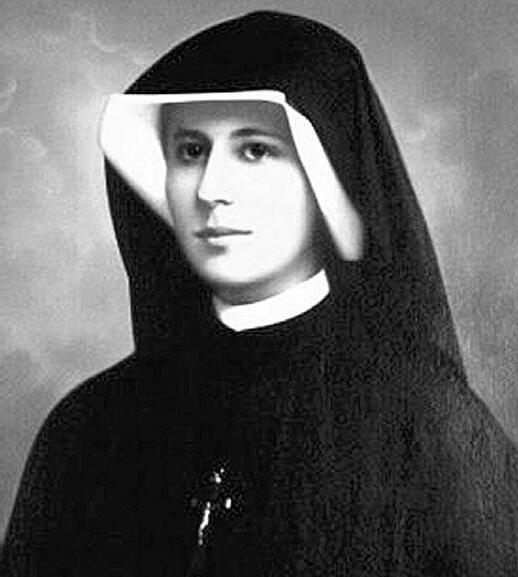 St Faustina Kowslska
St Faustina Kowslska
Our Lady of Visitation Church has Mass at 7.30am on Monday and Wednesday, and at 9am on Saturday. St Joseph’s Parish in Bassendean has Mass at 7am and Adoration from 8.30am to 7pm. Details of Mass and Adoration times available after or before Holy Hour can be obtained by contacting the relevant parish office.
For those wishing to combine their Divine Mercy devotion with a pilgrimage, there will be one held at Bove’s Farm in Margaret River this year. The Divine Mercy Apostolate and other prayer groups will run a program there on Friday October 31.
It will begin with a Holy Hour to Jesus and Mary from 2pm to 3pm. Reconciliation will be available at this time. At 3pm there will be Divine Mercy Mass. This will be followed by an outdoor re-enactment of the Way of the Cross. Between 5pm to 6pm participants may enjoy an evening meal for $10 per person. Hot drinks and soft drinks will be available to all.
Transport from Perth and Willeton can be arranged for $28 return. For further information regarding transport and general enquiries, contact John Murphy 9457 7771.
As the 25th anniversary of the election of Pope John Paul II arrives on Friday, October 16, world leaders and a host of other people will be falling over themselves trying to express a tribute that will stand out from the crowd.
Ordinary Catholics like the writers and readers of The Record will probably settle for a huge and heartfelt Thank You to God for having given us such a remarkable leader to guide us through a most complex period in the spiritual and moral history of the world. Gratitude for the Pope and praise to God for giving him to us and sustaining him through his papacy are the only sentiments that can encompass all that he means to us.
For the first time in human history, the world is a recognisable unity of which all nations and people are a part. Standing in the centre of this global stage as the most respected leader of all is the Vicar of Christ on earth, Pope John II. It is a remarkable achievement. Among religious and political leaders, many of whom who are reluctant to accept Jesus, or to obey him, the Pope stands alone as the centre of truth and goodness.
He alone could have brought together so many world religious leaders in prayer at Assisi and in many other ways throughout his missionary journeys
Congratulations to our new Cardinal Pell. His appointment is akin to a breath of fresh air for our country. As a convert to Catholicism, I daily pray to our God for allowing me to be so and despite the ravings of the secular press and others, those of us who possess the truth will continue to pray for our good Pope John Paul and our new Cardinal.
May the Holy Spirit enthuse all people of goodwill to do the same and may the Love that emanates from the Omnipotent, Omniscient, Omnipresent Almighty God, free us from all the evils that pervade our society in this day and age. God bless all who live in the truth.
Arthur Olsen
Maddington
Much personal, familial and social distress originates from failure to observe the fourth Commandment. “Honour your father and mother” links the first three commandments about God to those that regulate human relationships. Defined as something that confers distinction or does credit, ‘honour’ is now a neglected concept in a generation unaware of the distress which selfish, recalcitrant and inconsiderate behaviour causes to those who love them.
Today, Christian parents worldwide lament for those children who adopt amoral and hedonistic life styles.
The problem often first manifests itself when teenagers refuse to accompany their parents to Mass. A desire for peer group acceptance supplants the need for parental approval. In the interests of domestic harmony and to avoid arguments, parents concede.
In late adolescence living independently is seen as the new freedom and contracepted cohabitation in the age of live-in ‘partners’ often follows.
Marriage? The popular mode is a humanistic, civil celebrant’s ceremony in a photogenic forest. Leafy backdrops replace altars and crucifixes. Christian
POBox 75, Leederville, WA 6902 Tel:(08) 9227 7080, Fax: (08) 9227 7087 cathrec@iinet.net.au
around the world. He alone could have spoken to so many political leaders in the centre and on the fringes of the Iraq war, for example, and in many other conflicts around the world. His position is unique because he is totally committed to the goodness of peace, justice and forgiveness. He calls on mankind to abandon the ways of violence, recrimination and revenge, and he is heard, if not yet followed, because he clearly lives the qualities he teaches.
He teaches with love the beauty of the Gospel way, and all can begin to hope in it, even if only a little, because they can see that it is lived and they value what they can see in him.
He has made the Universal Church a truly universal gift. He represents Christianity without national or ethnic limits or self-interest. His is an unfettered commitment to the goodness of God, and he challenges and inspires Catholics to rise above their national and ethnic limi-
tations, just as he inspires others to believe that such a vision of mankind is possible.
For 25 years he has tirelessly taught the simplicity and the wonder of the wisdom God gives us in Jesus. His voluminous writings on almost every aspect of divine and human life are inspired. They will live for centuries to guide countless other teachers, long after the critics who either have not read or understood them have been converted or otherwise have passed into silence.
His Theology of the Body and his Gospel of Life stand as joyful antidotes to the sexual wasteland and the culture of death that are causing so much damage in the hearts and minds of men, women and children. All things human – the good and the bad – are wrought through relationships, and at this very time the Australian of the Year, Professor Fiona Stanley, is reminding anyone who will listen that at least 20 per cent of our
Iattended “Peace Be Still” in Chittering on Saturday September 27 to hear Fr Justin Belitz giving his spiritually inspiring talks which help me to strengthen my inner peace. I am a practising Catholic in my seventies. Fr Justin has not said one thing to steer my thoughts away from what I have always believed as a Catholic. I feel spiritually stronger and peaceful within every time I attend his talks. I hope he will be back next year.
S Rakich Baskervilleteenagers suffer some form of mental illness. It is true for Australia and the western world.
This epidemic comes from the failure or inadequacy of fundamental human relationships, both personal and social, and in our society from fundamental misunderstandings about the nature of those relationships. We are teaching our young the ways of error and reaping the consequences in their pain.
Pope John Paul has described the profound truths of human nature in ways that will guide the willing to a better understanding of the potential of all that is good in humanity. Freedom is a priceless human treasure, but it is limited to choosing our actions, not their consequences. Truth and freedom must travel together if the journey is to be successful and if what we pass on to our children is to be helpful.
Finally, in the remarkable life and love that shine through his frailty, our Pope is a living reminder that the culture of death has no meaning.
As in youth, so in frailty, it is not who we look like that matters, but who we are.
Those who see only the Pope’s weakness must live in their blindness, while those who see the power and the beauty of his love will live in the joy of this great gift from God.
Metaphysics from the American National Institute of Psychical Research for his outstanding programs in the study and practice of Metaphysics. He is also a “distinguished and award winning Silva Mind Development instructor.”
Unlike the Aristotelian use of the term ‘metaphysics’, the Institute’s use of the word ‘metaphysics’ seems to be closer to a New Age consciousness and belief in alchemy, which attempts to change the physical at a sub-atomic level, as well as using psychic and spiritual principles to recreate a Pre-Fall Adamic state denying Original Sin and God’s salvific plan in Jesus Christ.
New Age spirituality is a Theosophical view of God and Man to cause a change of consciousness establishing a new reality of a holistic, humanist one-world-religion and universal spirituality.
benedictions, if any, echo silently in parents hearts.
In this scene of shifting social values where are the loyal, anguished and perplexed parents? They are standing with their arms about their children. Why? Because a cross in life is a challenge to love unconditionally.
Ron Powell BooragoonThe Record’s October 2 report, ‘Women in Solidarity’ mentions decades of insecurity which have denied civilians, particularly women, access to the most basic resources for life.
The United States has consistently been blamed for starting the war against Saddam Hussein precipitously, as opposed to the policies of the United Nations
But shouldn’t it be the UN, perhaps, which should answer for tolerating the tyrannical Hussein regime there for such a long time?
At the beginning of the 1990’s it was the US which carried the burden of the Kuwait war for the benefit of the UN. Iraq is not finished yet, and on the horizon a new danger appears to be looming for the world - fundamentalist Iran.
North Korea would be alone in any nuclear blackmail it may attempt, but Iran would win the support of many Islamic countries and organisations.
Francis Hrubros Glen ForrestCongratulations on the appointment of Mr Ron Dullard as Director of Catholic Education. As parents we look forward with hope for our Catholic schools to provide not just a good academic education for our children but a strong deep commitment to the truth of our Church teaching.
Sadly, for too many years, Catholic schools have often pandered to the prevailing secular humanist views of our society, with an apparently ever-increasing number of non-practising Catholics teaching religious education.
This has meant that many children do not receive the truths of our faith from many teachers. Those faithful few who courageously uphold the truth especially on morals, do not seem to get much support from the establishment.
As reported in the West Australian (September 1) Mr Dullard’s plan to encourage the other 50 per cent of Catholic children back to Catholic schools, is an excellent idea. The big problem would be to find dedicated teachers capable of instilling sound values of Catholic truth, integrity and morals. Perhaps a good starting point could be found in the words of the hymn Seek ye first the Kingdom of God‚
Deirdre Lyra ForrestfieldJustin
Belitz’s web site say he holds an Honourary Doctorate of Philosophy of
Shamanism, Yoga, visualisation, breathing techniques and mantras are basic elements in achieving this.
Influenced by New Ager Dr Jerry Jampolsky MD who says he can help you tune in to the voice of your inner teacher, I believe Success: Full Living was developed from A Course in Miracles. The problem with A Course in Miracles is that it uses Christian words to teach sources from other religions.
Putting a Big Mac in a Hungry Jack’s wrapper does not make it a Whopper. This concept of Man and God is diametrically opposed to the Biblical revelation of the Divine Image as well as Catholic Doctrine. It is no small matter, nor is it irrelevant.
Changing oneself and achieving success is a good thing if it is based on Matthew 6: 25-34 and 2Corinthians 5:17.
Eddie Russell
Flame Ministries International
Thankyou linesmen, thankyou ball boys. Correspondence on this subject is now closed. - Ed.

The long-running debate over genetically modified crops is being examined by the Pontifical Council for Justice and Peace. Interest in what will be Rome's position on the subject is running high. Recently the Italian newspaper La Stampa ran a series of articles on the matter, starting with an August 3 story that said the Vatican was opening up to the idea of approving genetically modified crops.
The paper quoted the president of Justice and Peace, Archbishop Renato Martino, as saying that it is imperative to find a way to bring food to those who are starving.
He also warned against taking extremist, ideologically based positions on the question, affirming the need for rigorous scientific examination of the subject.
The latest country to weigh in is Brazil, which last week gave the go-ahead to planting modified soybeans. The decision revealed deep divisions, the New York Times reported on September 28.
First, the government announced the green light for the seeds, then a few hours later the vice president, José Alencar, cast doubts on the approval.
Finally, President Luiz Inácio Lula da Silva interrupted his UN visit in New York to overrule the vice president, who then signed the decree.
The New York Times noted it was an important decision, given that environmentalists have played a major role in Lula's Workers' Party since its founding over 20 years ago.
The decree is valid until the end of 2004 and contains restrictions on where GM crops can be planted.
Here, in Australia, earlier approval for GM crops came with the decision by federal authorities to permit genetically modified canola.
Gene Technology Regulator Sue Meek declared the higher yielding canola hybrid was as safe for humans and the environment as conventional canola, The Australian reported on July 26. The decision came too late for planting this season. As well, the major canola states have moratoriums on growing GM crops, except for cotton.
In New Zealand, the government previously announced that it was lifting a moraorium on GM crops effective this month, the Sydney Morning Herald reported on on April 18.
Agriculture Minister Jim Sutton said a commission of inquiry had found potential benefits for New Zealand in adopting genetic modification, and the government would ensure a cautious case-by-case approach would be taken to applications to release GM organisms.
In Britain, meanwhile, a number of
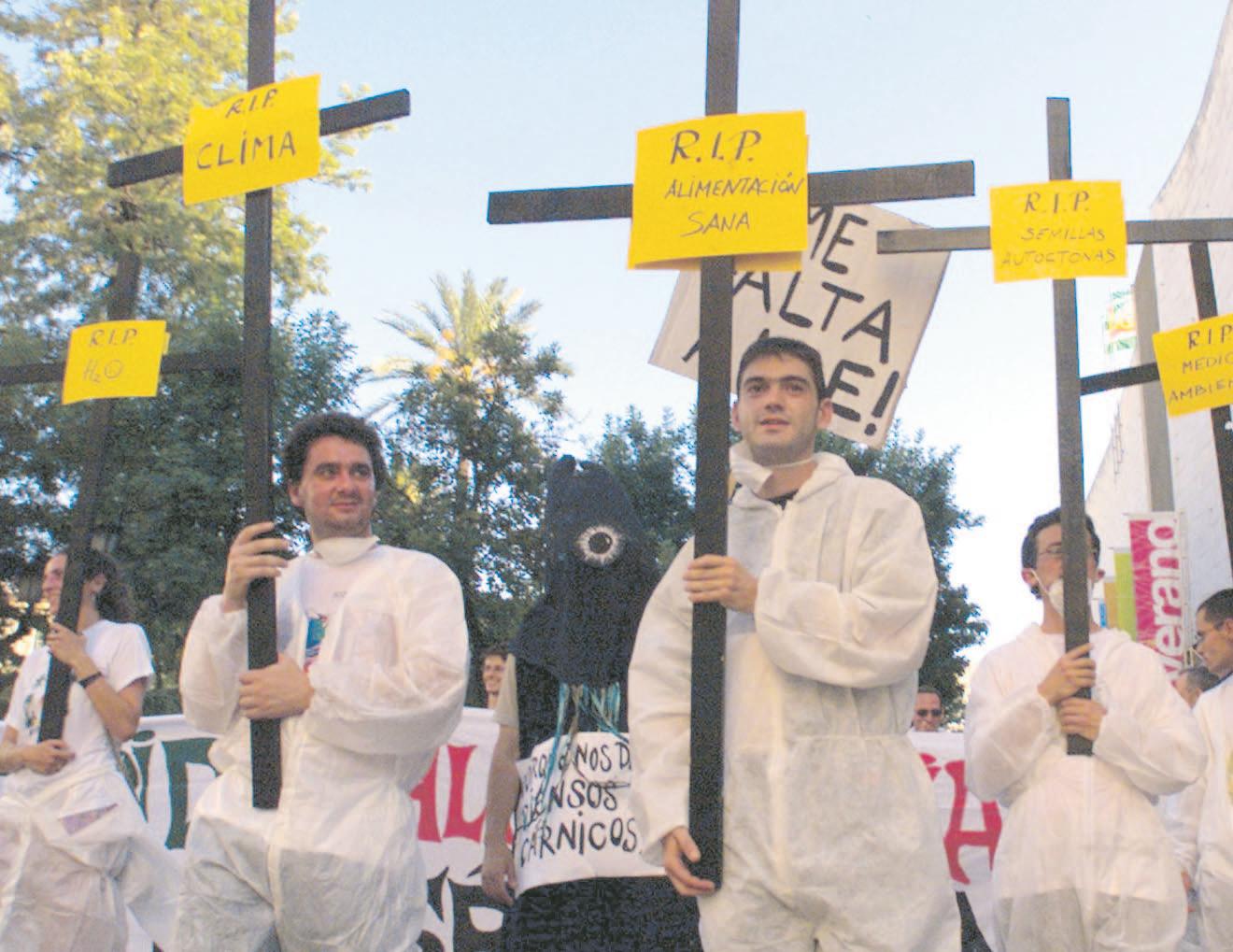
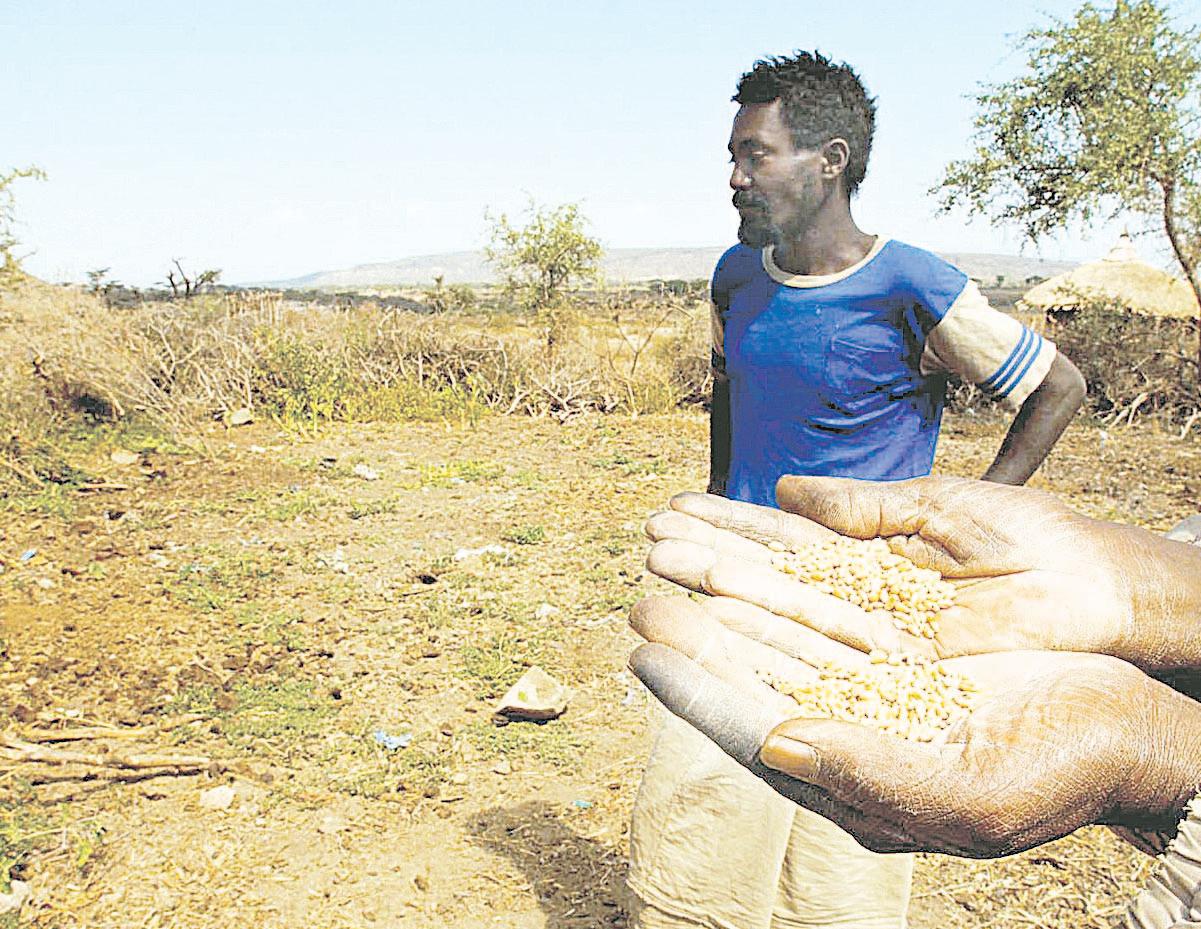
fied form. New research showed that the crops allow insects and spiders to flourish around their edges and thus provide more food for birds, the Independent reported on March 13.
The International Council for Science, a Paris-based federation of more than 100 national science academies, concluded that GM crops do not pose health problems for consumers, the Financial Times reported on June 6.
The report looked at more than 50 important research studies.
On food safety, it found wide acceptance among scientists that current GM foods are safe.
However, the report did warn that more complex products, yet to reach the market, might carry health risks.
On the negative side the scientists disagreed on the impact GM crops will have on biodiversity. The Vatican's forthcoming statement will likely add fuel to the debate. -Zenit
reports have looked into GM products.
The first report, from the Cabinet Strategy Office, cast doubts on the commercial attractiveness of GM crops because of consumer resistance, BBC reported on July 11.
The report nevertheless argued that Britain should not turn its back on the new technology, since the crops could offer wide-ranging benefits to farmers and consumers in the long term.
Environment Minister Elliott Morley said: "The report highlights that GM crops are one area in which GM technology has significant potential to contribute to the UK's future economic prosperity and sustainability."
But he added: "It also points out that GM crops are just one possible tool for achieving our goals - important advances in crop
production will also come from conventional and organic techniques."
Shortly after, a panel of 25 experts said it found no case for ruling out GM crops in Britain as "there have been no verifiable untoward toxic or nutritionally deleterious effects" on human health, BBC reported on July 21.
Yet, the GM Science Panel Review did add: "It is clear that gaps in our knowledge and uncertainties will become more complex if the range of plants and traits introduced increases."
The experts also considered that GM crops are unlikely to lead to "superweeds."
Some GM opponents argue that the genetic variations could be passed on, leading to herbicide-resistant weeds.
The British government's chief scientific
adviser, Sir David King, who chaired the panel, said that GM crops are not an homogeneous technology, and therefore applications will have to be considered on a case-by-case basis.
The most recent report examined the results of more than 650 public meetings held around Britain, plus 37,000 replies to questionnaires, on the GM issue.
The British daily Guardian reported on September 25 that 54% said they never want to see GM crops grown in the United Kingdom.
A further 18% said they would find the crops acceptable only if there was no risk of cross-contamination; 13% wanted more research.
This summer the European Parliament approved two laws that allowed the European Union to lift a five-year moratorium on GM products, a move that has provoked serious differences with the United States.
The laws require strict labels for GM products, the Financial Times reported on July 3. All products containing more than 0.9% of GM organisms would have to be labelled as GM products.
US farmers say the laws will do nothing to open the EU market, even after the ban is lifted, because the elaborate tracing provisions are impossible to meet without a costly effort to segregate all GM crops from non-GM crops.
The European Court of Justice recently ruled that governments can block the sale of GM food products, under certain conditions.
The case involved Italy and genetically modified corn sold by Monsanto Company, the Wall Street Journal reported on September 10.
Under the ruling, countries are allowed to temporarily ban the sale of GM foods that other EU authorities had approved for sale, but only if they could demonstrate a
health risk. The court relied on a rule known as the precautionary principle, which has been invoked to ban US beef treated with growth-promoting hormones as well as a chemical component of some plastics.
But, the court said such risks "must not be purely hypothetical or founded on mere suppositions which are not yet verified."
In the meantime, the battle to influence the public's views continues. In the Guardian on June 2, Jeremy Rifkin, president of the Foundation on Economic Trends in Washington, wrote that Europeans opposed GM products not just for health concerns but also for cultural reasons: "the last vestige of cultural identity most Europeans feel they have some control over is their choice of food."
As to the argument that GM crops can

For decades the Catholic Church's pleas asking governments to defend and support family life have often fallen on deaf ears. Now, in the midst of a birth dearth and a graying population, European governments are finally waking up to the looming crisis in their pension plans.
This week Italian Prime Minister Silvio Berlusconi announced proposals to reform the pension system. During a televised speech he admitted that the current system is not sustainable. Yet implementing the plan will prove difficult, as evidenced by the decision of labor unions to stage a national strike later this month on the issue.
Demographers gathered at a recent meeting of the International Statistical Institute in Berlin warned of problems due to population aging, Reuters reported on August 15.
"While the 20th century was the century of population growth, we can already say from a demographic perspective that the 21st century will go into the history books as the century of aging," said Wolfgang Lutz of the International Institute for Applied Systems Analysis in Austria.
The United Nations predicts the percentage of the global population aged 65 or over will soar to 16% by 2050 from the current 7%. In some countries, more than a third of the population will be 65 or older by then.
Lutz said that Europe's population was likely to start shrinking, though the aging would mean an increase in the number of singleperson households. This in turn would increase energy consumption and the emissions of greenhouse gases blamed for global warming - a scenario that contrasts sharply with the hopes of zero-growth advocates who contend that fewer people would mean less pollution.
"Fertility is the engine of demographic growth and we don't see it going up," commented Joseph Chamie, director of the UN Population Division. He said most politicians were failing to address the challenges posed by their aging populations.
The latest demographic data from Eurostat, the official statistics body for the European Union, is not comforting. An August. 8 press release noted that the total fertility rate in the European Union last year remained virtually unchanged at 1.47 children per woman, compared with 2001 and 2000. Guaranteeing a stable population requires around 2.2 children per woman.
Coming in under-average are countries such as Germany, at 1.40; Greece and Spain, at 1.25 each; and Italy, at 1.26. Eurostat also reported that the downward
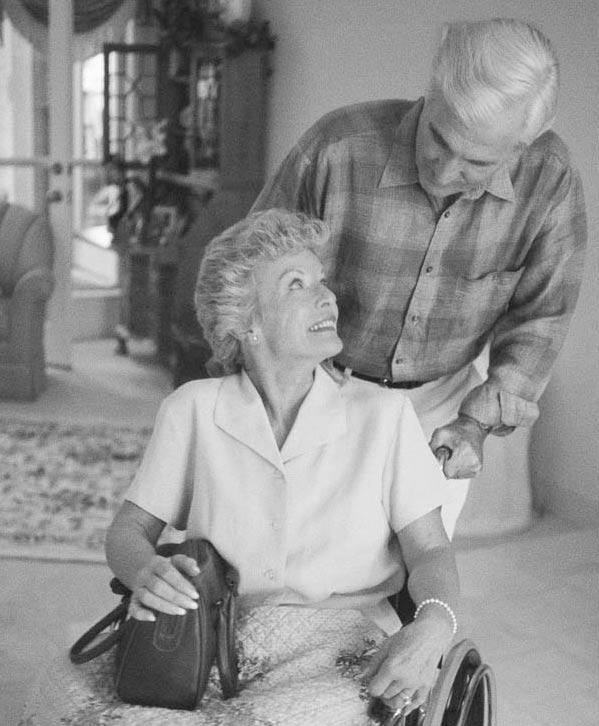
trend in the number of marriages continues, falling from 2.2 million in 1980 to 1.8 million in 2002, a 19% drop. Divorces increased by 42% in the same period, to 715,000. Overall, the EU population is estimated to have increased by 0.3% in 2002, compared with 0.4% in 2001. Around three-quarters of the increase was due to immigration.
The entry of more countries into the European Union will not solve the problem. According to a Eurostat report dated July 9, 2001, the enlargement of the Union will increase its population by 28%, to about 482 million.
But "due to a dramatic and continuing population decline in most of these 12 candidate countries, instead of reversing the population decline of the EU expected over the coming decades, their accession would, on the contrary, hasten it," warned Eurostat.
According to Eurostat the share of the population above age 65 in the current 15 members of the EU will grow from around 16% in 2000 to about 21% in 2020, perhaps attaining 28% in 2050. From around 2010 onward, the share of the population of working age is
expected to decline from around two-thirds to about 58% in 2050. The new entrants will do little to improve matters.
T
Even though they have a younger population, this will only slightly slow down the overall aging in the expanded European Union in the short and medium term.
In its September 27 issue The Economist published an analysis of state pensions in Europe. Opposition to reducing pension entitlements caused a nationwide strike in France on June 3, and the same day more than a million
between 13% and 14%. Of this amount, expenditure on old-age pensions topped the list of pension expenditure in every country, accounting for 75.8% of the total, or 9.6% of GDP. In real terms, expenditures on old-age pensions in the EU-15 rose by 32% between 1991 and 2000.
Some governments - Britain, the Netherlands, Scandinavia and Switzerland - have shifted much of the pension burden onto employers. Yet this move may only shift the responsibility without resolving the underlying problem, Newsweek reported in its October 6 issue. Many companies in the United States, where employer-financed pensions are more common, are running into financial difficulties because of pension burdens. According to Newsweek, companies now face a $350 billion deficit in pension plans. Financing these pensions could well damage the country's economic recovery as resources flow into pensions rather than into new business investment.
Beneath the economic data the real problems are related to the state of the family and public morality during the past few decades. Last June 11-14 the presidents of the European bishops' commissions for the family and life examined the situation in the continent.
The Pontifical Council for the Family organised the meeting held in Rome.
The participants concluded that a number of factors have damaged family life:
■ Marriage is being questioned, and a growing number of young people live together before getting married.
people in Austria marched in the streets to protest reform proposals. So far, leaders in Austria, Germany and Spain have only been able to avoid strikes by means of cosmetic reforms, the British magazine noted.
The leaders may not be able to avoid conflict for much longer. In Germany an advisory panel recommended last August that pension payments be cut by as much as 10% in real terms over the coming years, and that the retirement age be raised to 67 from 65.
The fundamental flaw in European state pension systems is that they are financed on a payas-you-go basis: Taxes on workers' pay finance the pensions of retirees. But an aging population, combined with longer life expectancy and few children, means the old system no longer works.
According to a Eurostat report dated May 20, 2000, overall expenditure on pensions in the current 15 EU members was 12.5% of gross domestic product. In Italy, this expenditure amounted to almost 15% of GDP, while the figures for Austria, France, the Netherlands and Germany fell
■ The prevailing culture favours separation and divorce as solutions to a couple's problems.
■ Countries increasingly give legal recognition to cohabitating couples, even though these relations often do not imply an enduring commitment. Some European countries have given legal status to same-sex unions.
■ There is a tendency to relegate the family to the private sphere, ignoring the fundamental service it offers to society.
■ The use of contraception has increased steadily, and in almost every European nation, abortionon-demand is available up to the 12th week of pregnancy.
John Paul II, in his postsynodal exhortation Ecclesia in Europa (No. 95) dated last June 28, commented on the falling birthrate and aging population.
He observed that it "is in fact symptomatic of a troubled relationship with our own future. It is a clear indication of a lack of hope and a sign of the 'culture of death' present in contemporary society." Governments and pension reformers might overlook the advice of the Pope, but they won't long be able to overlook their graying populations.
Zenit
At the start of his pontificate John Paul II faced a grimacing foe in Communism. Now, on the eve of his 25th anniversary as Pope, the Church is still facing hostility from the secular powers that be - this time in the West.
In Venezuela, testy relations between Catholic bishops and President Hugo Chávez have taken a turn for the worse, with the populist rebel-turned-leader publicly attacking the Church.
In Cuba, Catholics still face persecution, as seen recently in a prison's decision to ban inmates' Bibles. In the European Union, the Pope himself has made numerous pleas, so far rejected, for the constitutional recognition of the role of Christianity in the continent's history.
In the United States, too, the race in the California recall election is providing material for conflict. The current governor, Gray Davis, is signing a swath of decrees, among them approval for stem cell research using human embryos. At the signing ceremony, Reuters reported on September 24, Davis laid down a challenge, declaring: "I am not going to see religious or political opposition prevent groundbreaking research that can improve people's lives."
Two candidates running for governor -actor Arnold Schwarzenegger, and Lieutenant Governor Cruz Bustamanteare Catholic yet declare themselves prochoice on abortion. Noting Schwarzenegger's position, United Press International on September 30 noted: "This gentleman thus favours what his church calls an 'abominable crime' for which perpetrators automatically incur excommunication." Davis too is Catholic, though one of the most pro-abortion officeholders in the nation.
The situation is similar in Canada. Shawn McCarthy, Ottawa bureau chief for the Globe and Mail, wrote a commentary last May 3 on Canadian politicians and the debate over same-sex marriage.
He noted that Paul Martin, at that time touring Canada in his successful campaign to win the party vote for the succession to current Prime Minister Jean Chrétien, took care not to miss Sunday Mass. "And yet despite that strict adherence to Catholicism, Mr Martin gives virtually no public utterance to his faith as he campaigns to become the 22nd Canadian prime minister," observed McCarthy.
In an interview, Martin explained that he believes a politician must be able to separate his religious convictions from public policy stands. Martin said that while he does not like abortion, he defends "a woman's right to choose."
Prime Minister Chrétien, also a declared Catholic, is firmly pro-choice on abortion. He is also strongly supporting legislation to allow same-sex marriage and stem cell research on human embryos.
Nonjudgmental, sort of
In Scotland, the Catholic Church is taking a critical view of how politicians are managing matters. In the run-up to local elections earlier this year, the seven members of the bishops' conference signed a letter saying Catholics must consider how each
party addresses issues such as faith schools, abortion and contraception.
In the document published on April 16 by the Scottish Catholic Media Office, the bishops declare that voting "must be done in accord with one's conscience formed by the teachings of the Church."
“ C e r t a i n l y i n t o d a y ' s p l u r a l i s t i c
s o c i e t y C h r i s t i a n l a w m a k e r s a r e c o n f r o n t e d b y i d e a s o f l i f e a n d
b y l a w s a n d r e q u e s t s f o r l e g a l i s a t i o n w h i c h r u n c o n t r a r y t o t h e i r o w n c o n s c i e n c e , " n o t e d
t h e P o p e . H e t h e n e x h o r t e d t h e m t o b e a r w i t n e s s t o t h e i r o w n f a i t h .
They explained that it is not the task of the Catholic Church to propose a particular ideology or political manifesto. But they added: "The Church does however present the transcendent values and principles, which provide criteria for evaluating particular political choices."
Bishop Joseph Devine of Motherwell in Scotland returned to the debate with an article published in the Sunday Times on September 28. Public authorities are continually exhorting citizens to avoid racism, drive safely, and look after their health. "If the state is happy to moralise on some issues, why not on others?" he asked.
The state runs campaigns against smoking and drunken driving because of the high social cost of these behaviours. "Why, then, do our policy makers take fright at conveying similarly bold messages in drug and sexual health campaigns?" the bishop wrote. "Why do they instead bend over backwards not to be judgmental?"
He warned: "A failure to set these issues in a moral context can lead to a behavioural free-for-all, creating a moral vacuum in which many, especially impressionable young people, crave guidance and absolute truths only to receive platitudes and a seemingly endless array of choices."
John Paul II has always paid close attention to the role of religion in the public sphere, bolstered by his experience in dealing with the Communist authorities in Poland.
In his first encyclical, Redemptor Hominis, he asked if in the midst of modern progress "man, as man, is becoming truly better, that is to say more mature spiritually, more aware of the dignity of his humanity, more responsible, more open to others, especially the neediest and the weakest, and readier to give and to aid all" (No. 15).
Political power, he explained, should be exercised for the common good of society and within the context of "the objective ethical order" (No 17).
It is an error, observed the Pope, to think that "each human being is free when he makes use of freedom as he wishes, and that this must be our aim in the lives of individuals and societies. In reality, freedom is a great gift only when we know how to use it consciously for everything that is our true good" (No. 21).

John Paul II has repeatedly returned to these social and political themes, in three social encyclicals, numerous interventions on bioethical questions, and frequent commentaries on the United Nations and war and peace. In more recent years, he has increasingly reflected on the role of Christian politicians.
In an October 31, 2000, apostolic letter he named St Thomas More patron of politicians. "His life teaches us that government is above all an exercise of virtue," wrote the Pope. "What enlightened his conscience was the sense that man cannot be sundered from God, nor politics from morality."
A few days later, in his address to political leaders gathered in Rome as part of the Jubilee Year celebrations, John Paul II said: "Christians who engage in politics - and who wish to do so as Christians - must act selflessly, not seeking their own advantage, or that of their group or party, but the good of one and all."
When it comes to law making, the Pope exhorted them to "always respect and promote human persons -- in all the variety of their spiritual, material, personal, family and social needs." He specifically men-
tioned the importance of protecting life and the family based on marriage between a man and a woman.
"Certainly in today's pluralistic society Christian lawmakers are confronted by ideas of life and by laws and requests for legalisation which run contrary to their own conscience," noted the Pope. He then exhorted them to bear witness to their own faith.
Last November 14, John Paul II visited the Italian Parliament. He reminded the politicians of his words in Centesimus Annus (No. 46) that "a democracy without values easily turns into open or thinly disguised totalitarianism." He also urged them to defend human life and the family.
Since then, with the Pope's approval, the Congregation for the Doctrine of the Faith has published two documents orienting politicians on how to combine their public duties with Christian principles.
The first, in January, dealt with general orientations. The second, in July, addressed the subject of legal recognition to same-sex unions. Among the many legacies of this pontificate is a Church that is not afraid to remind politicians of their duties as Christians. -Zenit

Fine proposed
WASHINGTON (CNS) - The US Federal Communications Commission proposed a $357,000 fine against Infinity Broadcasting for a stunt it pulled last year with the broadcast of a couple allegedly having sex in St Patrick's Cathedral in New York. The fine comes to nearly $27,500 for each of the 13 Infinity stations across the United States that carried the "Opie and Anthony" radio program. FCC commissioner Michael Copps, a Catholic who is one of two Democrats on the five-member commission, was the only one to dissent on levying the fine. He said the FCC should have threatened to take away the stations' licenses. "I defy anyone to read the ('Opie and Anthony') transcript and argue that this broadcast does not violate the statutory prohibition against airing indecent material," Copps said in an October 2 statement. "And I defy anyone to argue that a $27,500 fine to each of the stations owned by a multibilliondollar conglomerate is adequate to address this clear violation of federal law."
New appointment
VATICAN CITY (CNS) - US
Cardinal Francis Stafford has been named by Pope John Paul II to head the Apostolic Penitentiary, the Vatican office that deals with matters of conscience involving the sacrament of penance and procedural issues concerning indulgences. Cardinal Stafford, 71, will leave the Pontifical Council for the Laity, where he has served as president since 1996. The new head of the laity council is Polish Archbishop Stanislaw Rylko, 58, who had been council secretary. The Vatican announced the appointments on October 3. They were among the first of a series of expected changes in the Roman Curia.

VATICAN CITY (CNS) - At the beginning of one of the busiest months of his pontificate, Pope John Paul II's continuing health problems prompted speculation in the media, concern among some cardinals and prayers from the faithful.
After announcing the names of 30 new cardinals on September 28, the 83-year-old pontiff carried out a full week of scheduled events - holding talks with international leaders, meeting with bishops and church groups, presiding over a general audience, welcoming the new Anglican primate and celebrating a canonization Mass for three new saints.
He went through his schedule appearing much as he has over the last few months: tired, unable to stand or walk, struggling at times to speak, but soldiering on to the end of each event.
At the general audience, he seemed to lose his voice at one point. As he stopped and shook his head, the audience burst into an encouraging applause, and several people in the crowd fought back tears.
The pope suffers from a degenerative neurological disorder believed to be Parkinson's disease and has been slowed by arthritis of the knee and the effects of several surgeries. His recent physical decline, although not drastic to those who have followed him closely, has prompted intense media interest, which in turn has generated comments by church leaders.
The most striking remarksintended "philosophically" but which ended up in headlines around the world - came from Cardinal Christoph Schonborn of Vienna, Austria.
"The entire world is experiencing a pope who is sick, who is disabled, and who is dying -- I don't know how near death he is -- who is approaching the last days and months of his life," Cardinal Schonborn told
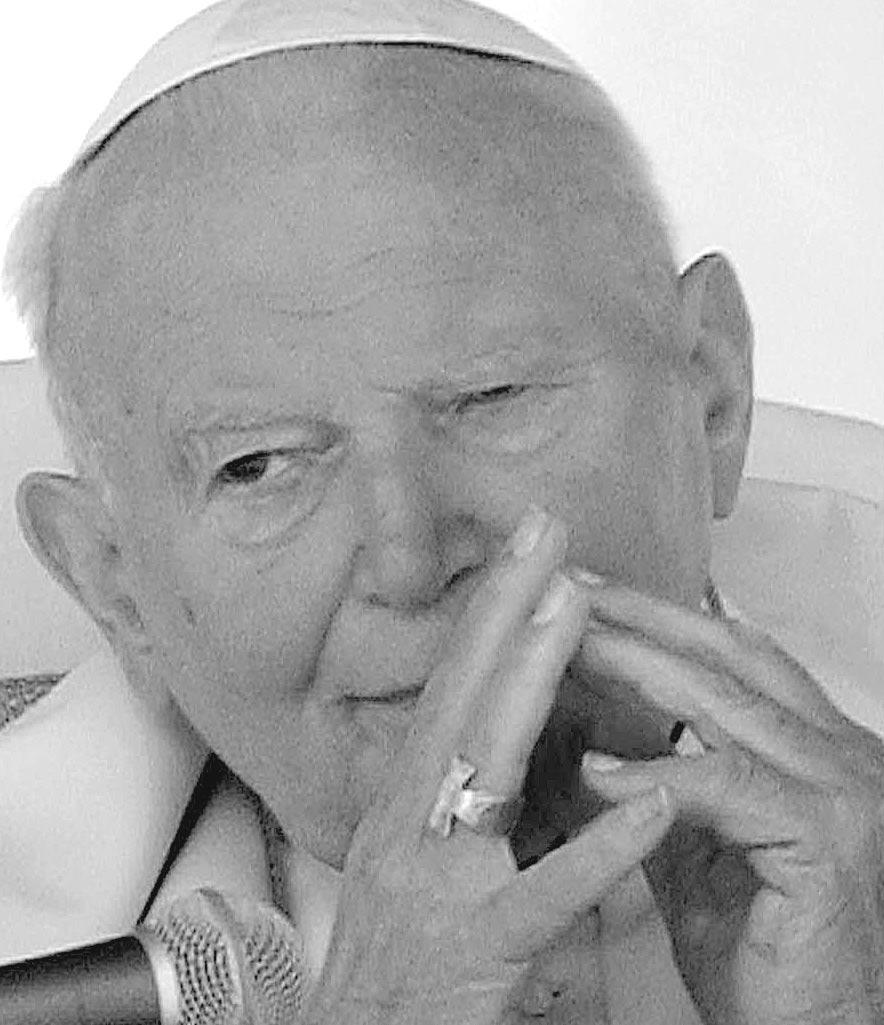
Austrian state radio on October 2.
The cardinal's comment prompted anxiety among many Catholics. Some church groups sent e-mail alerts for prayers on the pope's behalf. Several Vatican cardinals, however, quickly downplayed concern about the pope's health.
Cardinal Giovanni Battista Re, head of the Congregation for Bishops, said "there's no cause for alarm" about the pontiff.
"The pope is a strong man with a sharp mind and a clear vision of the world. I saw him today at lunch," Cardinal Re said later on October 2.
"Certainly he has difficulty with speech, especially when he's tired, and he has problems walking. But he's still a strong man," he said.
Asked about the possibility of papal resignation, Cardinal Re responded: "The Holy Father is obedient to God's will."
Cardinal Jose Saraiva Martins,
head of the Congregation for Saints' Causes, said the fact that the pope's October schedule was being maintained showed there was no sense of panic at the Vatican.
"The pope and all of us are in the hands of God. I think this alarmism about his health needs to be moderated considerably," he said on October 2.
The following day, Polish Prime Minister Leszek Miller met with the pope and said he did not look noticeably worse than in the past.
"It is not my impression that the pope is any worse, but of course the years take their toll," Miller said afterward. Polish Archbishop Stanislaw Dziwisz, the pope's longtime personal secretary, did not seem overly concerned about the pope's health as he chatted with reporters on October 2. The pope was meeting with Lithuanian President Rolandas Paksas in an adjacent room.
Archbishop Dziwisz told the reporters jokingly that many journalists who have predicted the pope's demise "are already in heaven."
On September 30, the German magazine Bunte quoted Cardinal Joseph Ratzinger, prefect of the Congregation for the Doctrine of the Faith, as saying in an interview that the pope was "in a bad way" and that people should pray for him.
But the cardinal's secretary, Msgr Georg Ganswein, told Catholic News Service that the cardinal's remarks were taken out of context and did not reflect a new sense of alarm over the pope's well-being.
What happened, Msgr. Ganswein said, was that Cardinal Ratzinger met on September 22 with representatives of two German beer companies and was explaining to them why the pope could not grant them a private audience. Apparently journalists in the group picked up some of the cardinal's comments.
"The cardinal said, certainly, we all have to pray for the pope. The pope himself asked us to do this. But that is something that can be said at any time," Msgr Ganswein said.
As for the pope's health, he said, Cardinal Ratzinger was "more or less expressing what anyone can see with their eyes and hear with their ears, that the pope is not well and speaks only with difficulty."
"All this was not said in any manner that could give a sense of alarm. Not at all," the cardinal's secretary said.
Even as the pope's health issues were making news around the world, the Vatican added two major events to the pope's already heavy October schedule.
The pontiff will preside over a public consistory with the new cardinals on October 21, officially inducting them into the College of Cardinals.
On October 22, the pope will concelebrate Mass with the new cardinals in St Peter's Square.
Chicago Archdiocese pays $8 million for 15 sexual abuse claims
CHICAGO (CNS) -- The Chicago Archdiocese has settled 15 clergy sexual abuse claims for $8 million.
The mediated settlements, announced October 2, included an agreement that the archdiocese would take several new initiatives to promote reconciliation and healing for victims of child sexual abuse by priests.
Cardinal Francis E. George of Chicago offered to meet personally with each of the survivors affected by the settlement,
said Jimmy M. Lago, archdiocesan chancellor.
C a r d i n a
C
He said costs of the settlements will be covered by insurance and the sale of undeveloped archdiocesan property.
In July the archdiocese settled five other claims for a total of $5.9 million. All those involved alleged abuse by former priest
Vincent McCaffrey, now in federal prison for possession of child pornography.
The new settlements involve claims against 11 other priests, all of whom are now dead, resigned or removed from ministry. All the alleged incidents occurred before 1992. They included one claim dating back to 1954.
Lago said the settlements included allowances for counselling and other services.
"Our objective was to work together with these survivors to identify a mutually agreeable approach to a resolution that would extend beyond the financial aspects," he said.In addition to the finan-
cial settlements with individuals, the archdiocese agreed to fund a series of conferences for victims of sexual abuse and to post on its Web site the name of any new priest removed from ministry because of sexual abuse allegations. against the Diocese of Brooklyn, N.Y., October. 1 on behalf of 27 people claiming to have been abused by priests of the diocese. Last April a similar suit by Dowd on behalf of 42 plaintiffs was dismissed on grounds that the statute of limitations for their action had expired. The new suit was filed two days before the installation of Bishop Nicholas A. DiMarzio as the new bishop of Brooklyn.

Papal envoy to Bush says events proved Vatican right about Iraqi war
Seven months after he tried to convince President George W. Bush not to invade Iraq, Cardinal Pio Laghi, papal envoy, said events have proved the Vatican right about the consequences of war and the difficulties of consolidating peace.
In a talk on October 4 at a conference on "God and the Meeting of Civilisations" at the central Italian monastic centre of Camaldoli, Cardinal Laghi recounted in detail his meeting last March with Bush and other White House officials In March, three weeks before the United States launched its offensive against Iraq, Pope John Paul II sent Cardinal Laghi, a former ambassador to the United States, to plead the case against war with Bush and his aides, but the cardinal said he did not feel his arguments were given much weight.
"I had the impression they had already made their decision," Cardinal Laghi said. Today, as U.S. and allied forces try to resolve vast problems in Iraq, "Events have shown that the worries of the Holy See were well-founded," he added.
Cardinal Laghi said that when he sat down to talk with Bush on March 5 the president began expounding the reasons for war at length, until the cardinal interrupted to say: "I did not come here only to listen, but also to ask you to listen."
Bush listened to the cardinal, but raised objections to the Vatican's moral arguments against the use of force, its rejection of "preventive war" and its warnings about the practical consequences for Iraqis and others.
When Bush said Iraqi President Saddam Hussein was training members of the ter-

rorist organisation al-Qaida, Cardinal Laghi said he asked him: "Are you sure? Where is the evidence?"
Cardinal Laghi also questioned the administration's conviction that Iraq possessed and was ready to use weapons of mass destruction.
But Bush had no doubt that he was right, the cardinal said. The president acted almost as if he were divinely inspired and "seemed to truly believe in a war of good against evil," Cardinal Laghi said.
"We spoke a long time about the consequences of a war. I asked: 'Do you realise what you'll unleash inside Iraq by occupying it?' The disorder, the conflicts between Shiites, Sunnis and Kurds -- everything that has in fact happened," the cardinal said.
After a House-Senate conference committee stripped it of a provision affirming Roe vs. Wade, legislation that would ban partial-birth abortion again passed the House on October 2, this time by a 281-142 vote.
But approval of the conference committee version was likely to take much longer in the Senate, where the amendment on Roe vs. Wade was originally passed.
Although supporters of the PartialBirth Abortion Ban Act hoped to take it to senators on October 3, before a 10-day congressional recess began, many believed the Senate was not likely to take up the legislation until after October 13.
"We applaud the House of Representatives for its overwhelming vote to ban the horrible procedure of partial-birth abortion," Gail Quinn, director of the US bishops' Secretariat for Pro-Life Activities, said on October 2. "We encourage the Senate to do the same as quickly as possible and get the bill to the president's desk as soon as possible." President Bush has promised to
sign the legislation, which would ban any abortion in which the baby is delivered "past the navel ... outside the body of the mother" before being killed, except when necessary to save the mother's life.
The Catholic Church has been a strong supporter of the ban and had urged that the amendment supporting Roe vs. Wade, the 1973 Supreme Court decision legalising abortion, be dropped.
Cardinal Anthony Bevilacqua, chairman of the bishops' Committee on Pro-Life Activities who retired in July as archbishop of Philadelphia, said in a September 12 letter to senators that most Americans and 30 state legislatures support ending the partial-birth abortion procedure, but they have been thwarted by court decisions permitting such abortions.
"In a representative democracy, our elected representatives in Congress cannot ignore these developments indefinitely," the cardinal wrote. "Here and now, they should not continue to delay a long-awaited ban on the brutal killing of children emerging from the womb, by insisting on an endorsement of the very court decision that has led some in our society to practice and defend such killing."
Bush insisted that democracy would be the main result.
At the end of the encounter, Cardinal Laghi recounted, Bush said that although they disagreed about many points at least they held common positions on the defence of human life and opposition to human cloning. The cardinal replied that those issues were not the purpose of his mission.
On his way out of the White House, Cardinal Laghi said his sense that Bush and his aides had already made up their minds to attack Iraq was confirmed when a Marine general came up to him, shook his hand and said: "Your eminence, don't worry. What we're going to do, we will do quickly and well."
Three weeks later, air strikes and the ground campaign against Iraq began.
The cardinal said that, in the end, the Pope and the church did not appear to have much influence on the decision to go to war or even in prompting a deeper reflection on the issues.
But to a wider global audience, he said, the church made the point that it was committed to peace.
According to a number of other speakers at the conference, the continuing lack of basic services and order in Iraq, along with continuing violence against US occupation forces, demonstrated that the war was a practical mistake as well as a moral failure.
Cardinal Laghi said that in making his case to Bush he was guided by the pope's statements on Iraq and those of the U.S. bishops' conference.
In a written paper submitted to the conference, Bishop Donald W. Wuerl of Pittsburgh detailed the response of U.S. bishops to the terrorist attacks and to the military response that followed.
Bishop Wuerl said, however, that the bishops' moral voice had been weakened by the clerical sex abuse scandal in the United States and the scandal's "spectacular" exploitation by the media.
"As a faith community the church in the United States had never experienced such a scandal or been the object of such intense media coverage and in too many instances manipulation of the story," he said. "In spite of the scandal the bishops have continued to speak out as a voice of moral authority.
However it is only fair to say that that moral authority has been diminished by the scandal," he said.
The conference was sponsored by Il Regno, an Italian Catholic magazine published by the Priests of the Sacred Heart of Jesus, also known as the Dehonians.
A good choice: Ratzinger reflects on the election of John Paul I as Pope
The unexpected death of John Paul I opened the doors to an unexpected choice of a nonItalian for the papacy, says Cardinal Joseph Ratzinger.
In an interview with the monthly magazine Thirty Days, the prefect of the Congregation for the Doctrine of the Faith revealed previously unpublished details about the election of Albino Luciani, the short-lived Pope John Paul I. The cardinal, who knew the future Pope when he was patriarch of Venice, spoke about his personal experience at the 1978 conclave. "It is true that the German-speaking cardinals met a few times," Cardinal Ratzinger said. "These meetings were attended by Cardinals Joseph Schröffer, former prefect of the Congregation for Catholic Education; Joseph Höffner, archbishop of Cologne; Franz König, arch-
bishop of Vienna, and Alfred Bengsch, archbishop of Berlin." A f t e r J
elected. He was not a man who sought a career. His death was totally unexpected" 33 days later, the cardinal recalled. At the time of his election, John Paul I seemed to enjoy good health.
He added: "Paulo Evaristo Arns and Aloisio Lorscheider, Brazilian cardinals of German origin, also met. It was a small group. We didn't want to decide anything at all. We only wanted to speak. I let myself be guided by Providence, listening to the names and seeing how consensus was finally formed around the patriarch of Venice."
After John Paul I was elected, "I felt very happy," Cardinal Ratzinger recalled. "To have as pastor of the universal Church a man of that goodness and luminous faith was a guarantee that everything was going well. He himself was very surprised and felt the weight of his great responsibility. It was obvious that he suffered somewhat because of this. He did not expect to be
"Personally, I am totally convinced that he was a saint, because of his great goodness, simplicity, humanity and great courage," the cardinal said. "He had the courage to say things with great clarity, even if he had to go against current opinions." After the death of John Paul I, Cardinal Ratzinger said that he and other cardinals "felt somewhat depressed."
"The fact that Providence would say 'no' to our choice was really a very hard blow," he said. "However, Luciani's election was not an error. Those 33 days of pontificate have had a role in the history of the Church.
"It was not only the testimony of his goodness and joyful faith. His unexpected death also opened the doors to an unexpected choice: that of a Pope who was not Italian."
Bishop Fulton Sheen’s extraordinarily insightful, if unique, interpretation of the Parable of the Prodigal Son in this work, is historical rather than moral.
The younger son in the parable is Western Civilisation.
After many long centuries in union with the Father’s House, the Church, Western Civilisation finally asked its Spiritual Father for its share of the inheritance - not inheritance in the form of gold and silver, but spiritual capital in the form of the eternal truths necessary for salvation.
Carried away by its newfound independence from the Father’s House, Western Civilisation began to spend the patrimony that Christ committed to His Church. It was not all spent at once, nor was it all spent in the same
A n e x e r t f r o m : T H E P R O D I G A L W O R L D
THE FINDING OF THE LOST ADDRESS DELIVERED ON APRIL 12,1936
he Incarnation of Our Blessed Lord was announced to a Virgin - Mary. But His Resurrection was announced to a converted sinner - Magdalene. And both were fitting. Only purity and sinlessness could welcome the all holy Son of God into the world, and hence Mary Immaculate met Him at the door of earth in the city of Bethlehem. But only a repentant sinner who had herself risen from the grave of sin to the newness of life in God could fittingly understand the triumph over sin. Hence not to the Virgin Mary, but to Magdalene, are the glad tidings of the Resurrection first announced.In this contrast is hidden the great truth of Easter Day: The Resurrection is for sinners. It is the final and absolute proof that Our Lord has come not "to call the just, but sinners." The fact that the Resurrection was first announced to Magdalene was already a proof that Easter is for the sinner, but the way in which she was chosen proves it still more. To the honour of womanhood, it must forever be said: A woman was closest to the Cross on Good Friday, the first at the tomb on Easter morn.
That woman whom John alone mentions in his history of Easter morn was Mary Magdalene: "On the first day of the week, Mary Magdalene came to the tomb in the early morning while it was still dark, and she saw the stone, which had been taken away from the tomb. So she ran and came to Simon Peter and to the other disciple whom Jesus loved, and said to them: 'They have taken the Lord out of the tomb, and we don't know where they have put Him."' One thought seemed to have absorbed her soul, that the Body of the Holy One had been lost! Not with her was it "out of sight, out of mind." She must find Him! After telling Peter, she went back to the tomb weeping. "Now as she wept, she stooped down

place, nor with the same friends.
Century by century the substance became smaller and smaller, and now as we look back in history, we can tell when each part of the capital was spent. In the 16th century, Western Civilisation spent its belief in the necessity of authority. In the 17th century, it spent its belief in Sacred Scripture as the revealed word of God. In the 18th century, it spent its belief in the Divinity of Christ, the necessity of grace, and the whole supernatural structure.
In the 19th century, it spent its belief in the existence of God as the Lord and Supreme Judge of the living and the dead. And in our own day, it has spent its last penny - a belief in the necessity of religion, the existence of moral absolutes, and the individual’s obligation to a Personal God. Truly, indeed, it has wasted its spiritual capital living riotously. How it can find redemption is the substance of these Lenten meditations.
About the Author
The country was in its worst depression ever, people were jobless, poor and desperate The First World War and the Russian Revolution had only set the stage for much greater calamities yet to come.
With prophetic insight, Fulton J. Sheen, who had just turned 40, delivered these powerful messages that are as applicable today - with very few exceptions - as they were on the day they were penned. It is obvious from these pages that they were the product of many hours spent in prayer before the Blessed Sacrament, eliciting the aid of the Holy Spirit.
and looked into the tomb, and she saw two angels in white, sitting one at the head, and one at the feet, where the body of Jesus had been laid. They said to her: 'Woman, why are you weeping?' She said to them: 'Because they have taken my Lord, and I don't know where they've put Him." There was no terror at seeing the angels, for the world on fire could not have moved her, so much had grief mastered her soul. "After she said this, she turned around and saw Jesus standing there, yet she didn't realise that it was Jesus. Jesus said to her: 'Woman, why are you weeping? Who are you looking for?’” And Saint John tells us she thought it was the gardener.
But perhaps Magdalene was not far wrong after all, for He was indeed the Heavenly Gardener. Every flower that blossoms was once a thought in His mind; every riot of colour on a green stem owes its life to Him; every seed of grace in every soul is planted by His hand. As the new Adam He too has His Garden of Paradise to cultivate with His grace, to plant with His inspiration, to nourish with His everlasting waters.

Bishop Fulton J Sheen
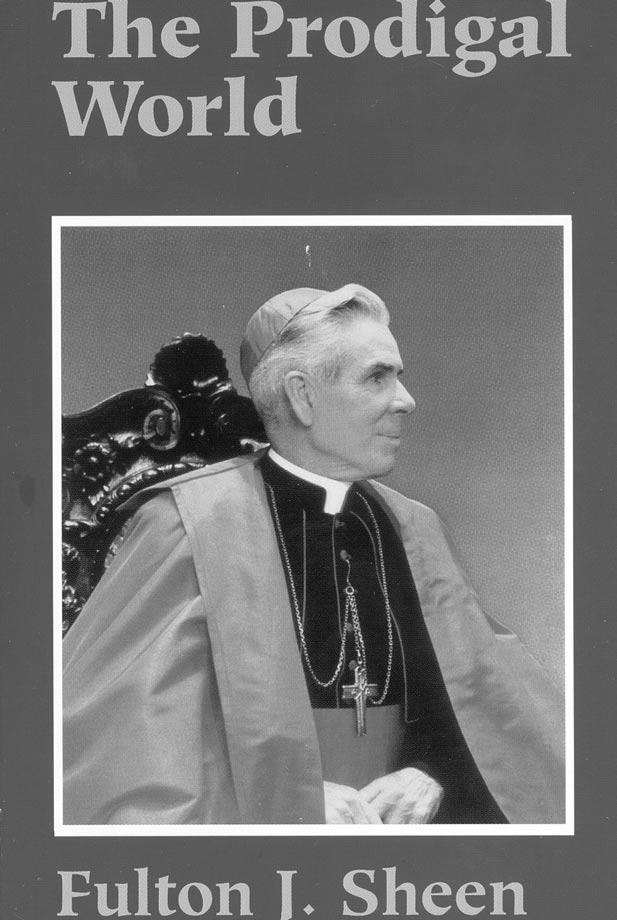
Obituary
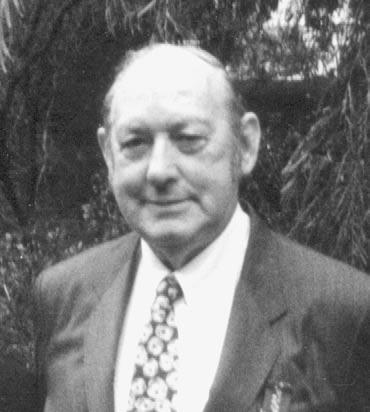
He died from complications of cancer on Thursday September 18, aged 76.
Mr Searson started at the Wanneroo Shire in 1966, and was shire president from 1974 to 1981. During his times as president the $2.7 million Joondalup council offices were erected as the first building in what is now the thriving city of Joondalup.
The Wanneroo Hospital (now known as Joondalup Health campus) was the second.
A builder by trade, he became deeply involved in the development of the State Government’s proposed satellite city.
In addition to his local government activities, he was the chairman of the board at the Speech and Hearing Centre from 1973 to1975, and from 1978 to1982. He was made a life member in 1984, his daughter Leonie Searson said.
She said her father received an Order of Australia Medal in 1995 for his commitment to local government and local communities, and his work with the Speech and Hearing Centre.
He was also a Justice of the Peace f or 25 years, a friend of the Servite
Friars for 40 years and a member of the Knights of the Southern Cross f or 48 years.
Fr James Corcoran is a family friend and like Mr Searson was from Tipperary, Ireland. Fr James delivered the eulogy and fondly r emembered Mr Searson’s personal contribution to the local community.
The Searson and the Corcoran f amilies lived in nearby farms in Tipperary. They had a history of friendship that spanned almost 150 y ears.
Charles Searson grew up “in a st r ong faith filled family,” Fr Corcoran said.
When Mr Searson moved to Australia, he loved the lifestyle but never forgot his roots, Fr Corcoran said. Mr Searson remained committ ed to his faith and to his Irish background.
“He displayed all that is good about our race, good moral standards, honesty, integrity and characte r. He was a deeply spiritual person without shouting it from the ro oftops, ever faithful to the Mass and the sacraments,” said Fr Corcoran.
Fr Corcoran spoke of how Mr Searson had welcomed him into his home when the priest had first migrated to Australia. Fr Corcoran brother received the same warm w elcome from Mr Searson when he later immigrated also.
The families continued to forge a st r ong bond in their adopted homeland, Fr Corcoran said.
Charles Searson’s wife Julia (nee O’Brien) passed away in 1994.
Their seven children Peter, Mary, John, Liam, Leonie, Robert and Gavin survive him, as do his six grand children, and two great grandchildren.
Tributes flowed in from the Speech and Hearing Centre, and the Wanneroo Shire Council, as well as fa mily and friends.
“A true gentleman of honour and integrity whose tireless work kept our doors open for generations of WA’s deaf children,” read one from the Speech and Hearing Centre.
TAX RETURNS, mobile tax return preparation service.For all your tax and accounting needs - business and personal.Contact John Edwards 9388 6773all hours.
BRICK re-pointing.Phone Nigel 9242 2952
ELECTRICIAN, Power/light points from $50 each.
Rewiring our speciality. 0418 941 286, 9279 5008.
LIC.PLUMBER/gas fitter, Contact John on 9457 7771, Mobile 0412 185 209.
PICASSO Painting.Top service.Phone 9345 0557, fax 9345 0505.
PERROTT PAINTING Pty
Ltd for all your residential, commercial painting requirements.Phone Tom Perrott 9444 1200.
EMPLOYMENT OPPORTUNITY
WORK from home Opportunity knocks. www.wfhoffice.com
Please direct all panorama to administration @therecord. com.au
Thank you
ALL areas.Mike Murphy 0416 226 434.
DENMARK - To Let, beautiful new 3bd, 2bth cottage, avail from Oct 11.Ph:(after 4pm):0412 08 33 77/ 9402 1252
HUMBLE MESSENGER
RELIGIOUS CATHOLIC SHOP 16/80 Barrack Street, PERTH (inside Bon Marche Arcade).New phone number:9225 7199.
DO YOU NEED MORE: Phone & TV aerial sockets, secuity alarms installed or relocated.Get a registered cabler (T08629), police licenced.Daniel:0417 977 779 or 93433278
RETREAT from the everyday pressures of life and experience Benedictine hospitality at the Monastery Guest-house.Situated 132 kms north of Perth in the historic town of New Norcia. Twin rooms with en-suites or single rooms.Join the monks for daily prayer and Mass.Directed retreats by arrangement.Tariff by donation, suggested donation $45 full board.Inquiries: Guesthouse sec.phone (08) 9654 8002, fax (08) 9654 8097.Email: guesthouse_nn@hotmail. com.Please quote ref.R3
CHRISTIAN musicians commited and mature (2035yrs).Lead guitarist, electric and/or electric acoustic guitar and an irish flute player to join contemorary youth music ministry.Won’t be disappointed.St Anthony’s Catholic Parish, Jamie & Helen Eusebio, Ph:9571 3212
Why not stay at STORMANSTON
27 McLaren Street,North Sydney Restful & secure accommodation operated by the Sisters of Mercy, North Sydney.
• Situated in the heart of North Sydney and short distance to the city
• Rooms available with ensuite facility
• Continental breakfast, tea/coffee making facilities & television
• Separate lounge/dining room, kitchen & laundry
• Private off-street parking
Contact:Phone:(02) 9957 5040 or email:nsmercy@ozemail.com.au
GATE OF HEAVEN
Returns to its previous programming to feature this week Household of Faith (The Eucharist),followed by The Journey Home with Marcus Grodi who interviews Fr Mark Wood,a former Southern Baptist.Please join us 7.30 to 9pm Sunday night at 107.9fm on your dial.
Sunday October 12
YOUTH FOR A UNITED WORLD (FOCOLARE MOVEMENT)
To end their United World Week,a yearly event to promote Jesus’prayer,May they all be one,(Jn 17:21) the Youth for a United World are holding two events.The first will be at Kings Park.People will meet at 3.30pm at the Information Centre on Fraser Avenue.A bush walk,and moment of prayer for peace at the Bali Memorial will be followed by a BBQ.At 6.45pm people will gather at the Parish Hall at Saints John and Paul Church in Willetton for an Australasian telephone link up and a global linkup to share various activities held worldwide to promote unity.Phone 6278 3425 or 9349 4052 for further enquiries.
Sunday,October 12
ETERNAL WORD TELEVISION NETWORK
1-2 pm on Access 31.This week two talented Catholic singers of international repute will be featured.Dolores Park,in a heartwarming setting of Catholic family living,Park Place,followed by Marilla Ness,filmed in the Holy Land,singing sacred music, On Holy Ground.The following week a program on The Rosary is planned.EWTN speaks not only to Catholics,but to all who seek God,and those who are looking for family values in the media.Videos are also available.Enquiries:9330-1170.To keep these valuable evangelising programs on air,please send donations to:The Rosary Christian Tutorial Association,PO Box 1270,Booragoon 6954.
Sunday October 13
BULLSBROOK PILGRIM MASS FOR THE SICK
The Sacrament of the sick will be administered for spiritual and physical healing during Holy Mass celebrated at 2.30pm at the Shrine of Virgin of the Revelation,36 Chittering Rd,Bullsbrook.Exposition, Holy Rosary and Benediction precede Mass at 2pm. Reconciliation is from 1.30pm.All are most welcome. A Pilgrimage Mass is celebrated at the Shrine every Sunday at 2.30pm.Enquiries:Tel SACRI Assoc.9447 3292.
Monday October 13
CATHOLIC MENTAL HEALTH SUPPORT GROUP
Carers meeting is held on the second Monday of each month commencing at 7.30pm at Our Lady of Lourdes Parish,Marda Way,Nollamara.These meetings provide the opportunity to share information and offer mutual support.For more details contact Pat Mahoney 9275 2809
Wednesday October 15
MIRACULOUS MEDAL NOVENA
You are invited to a Novena in honour of Our Lady of the Miraculous Medal to be held at St Augustine’s Church,36 Gladstone Road,Rivervale.Commencing at 7pm,concluding on Wednesday December 10.
Thursday October 16 POPE JOHN PAUL II 25TH PONTIFICATE ANNIVERSARY St Mary’s Cathedral,12.10pm Holy Mass.12.30pm Exposition,Rosaries,Litanies and Divine Mercy Chaplet.3pm Benediction.
Friday October 17
ALL NIGHT EUCHARISTIC ADORATION
All night vigil at Saint Bernadette’s Church,Jugan St, Glendalough begins at 9pm.Readings and reflections on the Hours of the Passion of Our Lord Jesus Christ. Rosaries and hymns during the night.Concludes Saturday morning with Parish Mass at 7.30am followed by Rosary and Benediction.
Sunday October 19
MASS FOR GERMAN SPEAKING COMMUNITY
Thirlmere Road,Mt Lawley.9am Mass – Restorative Unit,followed directly by a brief AGM and light breakfast in the Mercy Conference Centre/Ursula Frayne room.RSVP for catering purposes.Phone 9242 4066, fax 9242 4067,email ljgbc@iinet.net.au
Wednesday October 22
OUR LADY OF THE MIRACULOUS MEDAL NOVENA
Woodvale Parish,St Luke’s Church.The nine-week novena is held every Wednesday 5.30pm from Oct 22 to Dec 17 (the last Wednesday before Christmas).All are welcome.Enquiries contact the Parish office on 9409 6291 or Jim Thomas on 9409 2908.
Saturday October 25
NOVENA TO OUR LADY OF VAILANKANNI
Holy Trinity Church,Embleton.5pm followed by Vigil Mass at 6pm.Last Saturday of every month.Enquiries 9272 1379.
Saturday October 25
A DAY IN PERTH ABOUT SPIRITUALITY IN THE PUB
Hear the history - how it started,how it developed,how to set it up,how to run it on the night,who to get as speakers,how to choose topics,get the SIP manual, learn about the spirituality of conversation and much more! To be held at Holy Name School,25 Marchamley Pl,Carlisle,11.30am – 3pm,includes light lunch,cost$10.00 Contact Trish Summers (of the Northbridge group) on 93817434.SIP is an initiative of Catalyst For Renewal.http://www.catalyst-for-renewal.com.au/>
Sunday October 26
MULTICULTURAL FOOD FAIR
Mercedes College Hall Cnr.Victoria Square and Goderich St,Perth 11am-4pm,free entrance.Mass 11.30-12.30 at St Mary’s Cathedral,Victoria Sq.All proceeds will go towards completing the new Bindoon Church.All welcome! Enquiries Fr Paul 9571 1839 or Francis 0404 893 877.Parking available in Mercedes College Grounds, Goderich St from 11am and the Cathedral Grounds after 12.30pm.
SEX,DRUGS AND ROCK MUSIC X-POSED
A free series of hard-hitting-no-punches-pulled talks by Flame Youth Ministry will expose the shocking reality behind the Sex,Drugs and Rock sub-culture and its hidden language.The drug scene is ugly and the consequences deadly.Talks will be given by those who have overcome as well as those who have avoided it offering a way to heal.Parents,teachers,youth leaders,pastors and young people will benefit from the personal testimonies.Beginning at 8pm on Friday October 17,October 24,October 31 and November 7 at the Alverna Centre,St Lawrence Church,392 Albert Street,Balcatta.Please bring a donation to cover costs.
CROSS ROADS COMMUNITY
Healing Masses:1st Monday of month 7pm Church of East Fremantle,2nd Monday of month 10am St Jerome’s Munster & 3rd Monday of Month 7pm St Dominic’s Innaloo.Term 4 Begins Tuesday October 14.
PERPETUAL ADORATION
Christ the King Church,Lefroy Rd,Beaconsfield commenced perpetual Adoration of the Blessed Sacrament on October 1.The Blessed Eucharist is present for joyful prayer,24 hours a day.Over 130 parishioners have already pledged to attend at least one hour per week. We need to fill these late evenings,early morning hours or anytime day or night.If you can help us please phone Joe (h) 9319 1169 (w) 9430 7937 (mob) 0419 403 100.Please remember you are invited to attend anytime on a permanent or casual basis.
DAILY MASS
Parish Priest Fr Doug Harris is offering daily Mass at 5.45pm in St Bernadette’s Church,Glendalough.All are welcome.Enquiries 9444 6131
GREENWOOD PARISH MISSION
Opening
Day
Confirmation,Maida Vale - Mgr Tim Corcoran
28Graduation Mass for Mercedes College - Bishop Sproxton
29LifeLink Christmas Appeal Launch,Redemptorist MonasteryBishop Sproxton
National Bank Reception - Greg Russo
Confirmation,Mundaring - Mgr Tim Corcoran
31Confirmation,Nedlands - Mgr Peter McCrann
Archbishop Hickey will be leading a Pilgrimage to Rome for the Beatification of Mother Teresa from 14 October - 1 November
Will be held at 12midday at St Francis Church,Windsor St,East Perth.
Sunday October 19
SPRING FAIR
St Brigid’s Primary School,20 Toodyay Rd,Middle Swan.10am – 4pm.Variety stalls,rides,entertainment, local bands,food and drinks.All proceeds to building a School Chapel.
Sunday October 19
CATHOLIC DOCTORS ASSOCIATION
Annual Mass,General Meeting and Breakfast. Celebrant:Bishop Don Sproxton.Mercy Hospital,
You are invited to the important event of our Parish Mission from Oct 20 – 24,to meet a personal God and to celebrate with us at All Saints Catholic Church,7 Liwara Place,Greenwood.Each day there will be three opportunities to celebrate together:6.45am Mass,9am Mass and the 7.30pm Preached Word.The Mission will be led by Fr Gerard Neagle,CSsR,of the Redemptorist Congregation.Info: www.greenwood.perthcatholic.org.au
HOLY HOUR
Every Wednesday at St Mary’s Cathedral,we have a Holy hour from 11am to 12noon.For all sick people and especially for our young people including the drug addicted and street kids.Please come and join us in prayer.Those who wish may also bring along a list of names of all the sick people they would like to pray for.
Giving

In the traumatic postwar context of a war that has cost three million human lives since 1998, a sense of despair still hangs over the region of the Great Lakes in Africa as international interests masquerading under the pretext of ethnic conflict still prevail. Human life is worth little here. T he situation in Bukavu, on the frontier with Rwanda, remains precarious. This was underlined again recently by Christine du Coudray, who heads the Africa desk of the International Catholic charity Aid to the Church in Need (ACN), during her visit to a Catholic congregation of nuns known as the Daughters of the Resurrection.
It is true that new hopes were raised, in the midst of all the turmoil, by the signing of a peace accord between four rebel groups and the president of the Democratic Republic of Congo, Joseph Kabila - and indeed July 17, 2003 was a day of general rejoicing. Despite this, deep fears for the future abound.
The people are exhausted. But the Daughters of the Resurrection are sharing this lot with their fellow Africans, in total dedication to the Lord.
The war, with its looting, vandalism and rape, has forced the closure of 11 out of their 25 convents. Having abandoned their rural houses, the sisters have been forced to flee to Bukavu, a town with grossly inflated prices and absolutely no possibility of providing for themselves.
The community of the Daughters of the Resurrection, established in 1966 by Father Werenfried van Straaten - the founder of ACN - and Mother Hadewych, currently numbers 188 professed sisters, 15 novices and some 12 postulants, all of whom are entirely dependent upon assistance from ACN for their survival. A monthly sum of $US40 per sister is not enough to cover their basic daily expenses, to say nothing of the repairs to their houses or to their vehicles, by now totally battered by the impossible road conditions. Even their host-baking machinery, with which they have supplied the entire archdiocese of Bukavu since 1969, now needs replacement.
Their superior, Mother Albertine, must face the burden of ever-rising medical costs after a number of the sisters have had to undergo urgent operations. There are numerous such costs, since these sis-
ters are suffering almost continuous stress. The traumatic situations they are exposed to result in a need for extensive health care measures. ACN, however, is dedicated to looking after them.
One major concern for the congregation is the professional formation of their sisters. Some 38 professed sisters are still attending basic schooling.
Despite an excellent religious formation, lasting five to six years, the sisters are frequently excluded from exercising professions because they lack the relevant formal qualifications.
In Cameroon, where they have very capably established a mission for the handicapped on behalf of the diocese of Bertoua, the local civil administration has removed them from this duty purely on the ground of lack of qualification. Hence, for administrative reasons, handicapped people are being prevented from access to the Sisters.
Ms du Coudray said: “We absolutely must help them along the road to independence, and during this post-war phase we must provide them with sufficient resources to fund both their apostolate and their professional formation, so that

one day they can say to us: we are independent now, and the money you have been giving us can now go to others in greater need than we are.” This is how sums up the situation.
This native African congregation of the Daughters of the Resurrection has now spread from the Democratic Republic of Congo into Rwanda, Cameroon and now, just a year ago, to Brazil.

The region of Kivu, right on the frontier between Rwanda and the Democratic Republic of Congo, has been the theatre of a bitter fratricidal war between different tribal groups for many years.
Most aid agencies have long since left because the situation is just too dangerous. Both countries have been bled dry by the civil war, with its inevitable consequences of suffering, displacement, hunger and sickness.
Only the Church remains, doing whatever it can to ease the immense suffering of these people who have been almost forgotten by the outside world.
Simply staying alive is the great daily challenge for most people here. Young children especially suffer from malnutrition and hunger.
There are countless orphans of the war, and now a growing number of AIDS orphans too.
The next biggest issue, beyond that of sheer survival, is the basic education of such youngsters. Without education there will be no future for the people of these countries. No less than 70 per cent of the population are children and young people. Here again the Church is deeply involved - for example the Franciscan Sisters of Christ the King in the archdiocese of
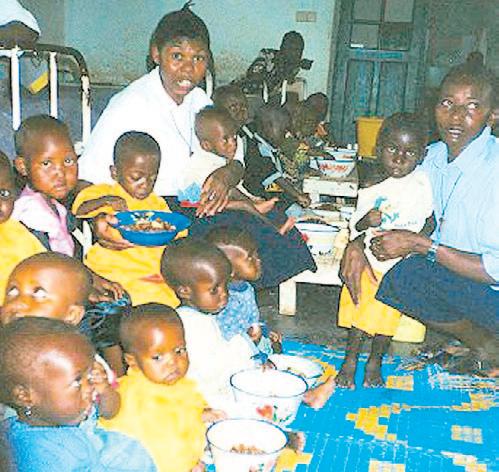
Bukavu. Nineteen of these sisters are currently active in pastoral and social work. Four more are preparing to join them, through a variety of different courses. But the sisters themselves need to be housed and their training paid for, otherwise the Franciscan Sisters will be unable to continue their work.
ACN has come to their aid with US$17,000.
Anyone who would like to know more or make a donation can contact the ACN office in Sydney on (02) 9679-1929 or email: info@aidtochurch.org.
Interested in helping?
ACN can be contacted in Sydney on (02) 9679 1929 or by email at info@aidtochurch.org
The Eucharist In Communion with Me Here is
to see and hear this stunning production which inspired the audience onthe night.
